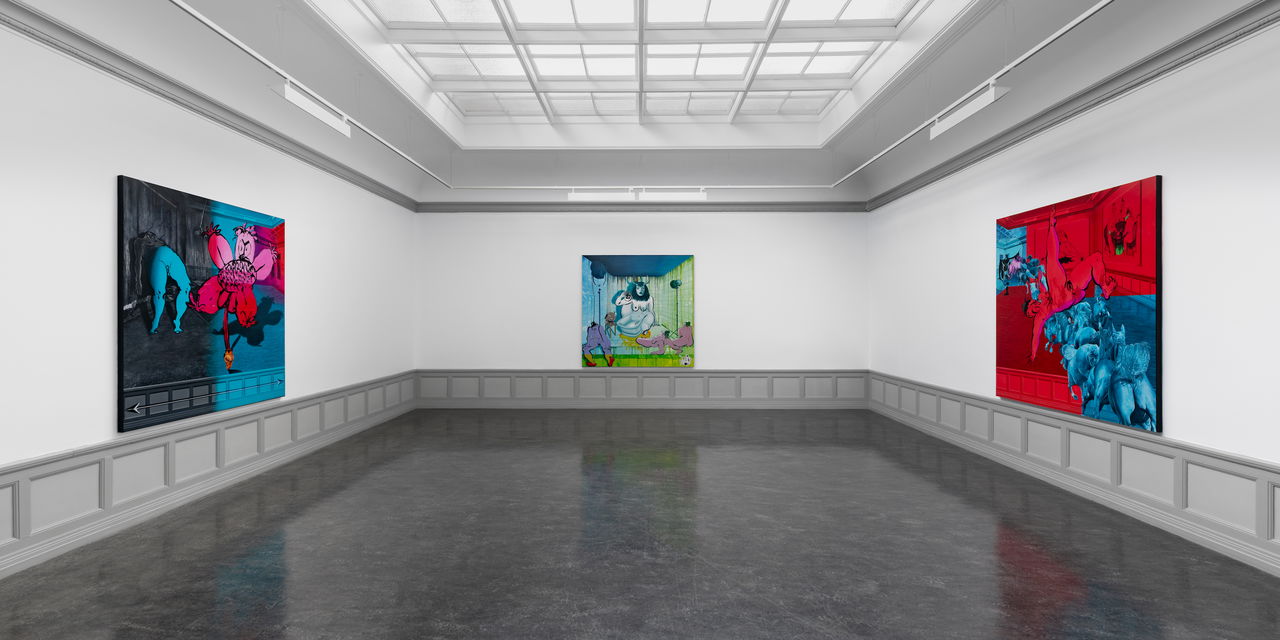
Kunsthall Stavanger is pleased to present Fatebe Shadows, the first Scandinavian solo exhibition by acclaimed painter Ebecho Muslimova. The exhibition showcases her vibrant and provocative character ‘Fatebe’, and features newly commissioned paintings created by the artist specifically for Kunsthall Stavanger.
At the core of Muslimova’s practice is a fascination with the archetype of the Trickster; a mythological character who crosses boundaries, disrupts norms, and through disorder asks us to reconsider our fixed notions of order and identity. Drawing from mythological and Jungian concepts of the trickster, Muslimova uses Fatebe to peel back the subconscious and reveal the creative potential residing in what we often try to suppress.
At Kunsthall Stavanger, Fatebe Shadows unfolds as a vivid exploration of the individual and collective subconscious through the figure of Fatebe as she moves through shadowed interiors and psychic spaces, including several of the Kunsthall’s own galleries. This collection of
Kunsthall Stavanger is pleased to present Fatebe Shadows, the first Scandinavian solo exhibition by acclaimed painter Ebecho Muslimova. The exhibition showcases her vibrant and provocative character ‘Fatebe’, and features newly commissioned paintings created by the artist specifically for Kunsthall Stavanger.
At the core of Muslimova’s practice is a fascination with the archetype of the Trickster; a mythological character who crosses boundaries, disrupts norms, and through disorder asks us to reconsider our fixed notions of order and identity. Drawing from mythological and Jungian concepts of the trickster, Muslimova uses Fatebe to peel back the subconscious and reveal the creative potential residing in what we often try to suppress.
At Kunsthall Stavanger, Fatebe Shadows unfolds as a vivid exploration of the individual and collective subconscious through the figure of Fatebe as she moves through shadowed interiors and psychic spaces, including several of the Kunsthall’s own galleries. This collection of drawings and paintings captures fleeting moments in the life of Fatebe, where she inhabits rooms and stages that become sites of multiplicity, ritual, and drama.
Here Fatebe is not merely a dark counterpart but a generative force; a reservoir of repressed traits and latent creativity that challenges the conscious mind’s rigidity. As Jung observed, the shadow “must be acknowledged continuously” for individuation to progress. The representations of Fatebe in these works display the messy, chaotic energies that underlie creativity and life itself. Muslimova’s process mirrors this insight. She approaches each work by setting rational parameters and then takes a cue from improvisational acting by letting Fatebe “yes and” herself into the work. This method allows for intuitive flow and unexpected connections.
Symbols and objects in the work serve as compositional and emotive signposts rather than fixed metaphors, and challenge viewers to search for their own interpretations. The repetition of skeletal forms could be an anonymous human counterpart to Fatebe’s cartoon-line body, or they could reference fear, mortality, or the constraints of our physical bodies. Objects like swinging pocket watches, moonlit lakes, and flower-shaped throwing stars function as emotional and formal signifiers rather than encoded messages. They create a compositional tension between movement and stillness, as well as a psychological tension between playfulness and trauma. Muslimova’s messages are intuitive rather than didactic – felt in the gut as well as the mind.
Architecture also plays a crucial role in these works, framing Fatebe’s movements and multiplying her presence. Rooms, theaters, bathroom stalls, and Kunsthall Stavanger’s own galleries become stages for Fatebe’s psychic dramas, often hosting multiple Fatebes simultaneously. These environments are characters in their own right, defining boundaries, enabling splits, and amplifying emotions.
The figure of Fatebe embodies “l’homme différent,” the “other-than-human” creature living at the margins of known worlds, caught between human and animal, nature and culture, visibility and invisibility. As historian Lucian Boia notes, these liminal figures evoke simultaneous fascination and horror, awe and abjection. Muslimova’s Fatebe captures this ambivalence, offering a powerful illustration of the often fluid, fractured, and surreal contemporary experience.
By weaving together myth, psychology, performance, and materiality, Muslimova creates a richly textured space for exploring the shadowy terrains of the psyche. Fatebe Shadows challenges us to embrace ambiguity, to see multiplicity as a source of strength, and to recognize the transformative power of the trickster’s shadow. As viewers move through the exhibition, they encounter Fatebe’s ever-shifting presence, sometimes playful, sometimes unsettling, always complex. This exhibition at Kunsthall Stavanger is an invitation to venture into the liminal spaces where creativity and shadow meet, and to reconsider the boundaries that define our own stories.
Curators: Hanne Mugaas and Heather Jones
Exhibition text: Heather Jones
Exhibition technician: Matt Bryans
The exhibition has received generous support from Kulturrådet, Fritt Ord, and Bergesenstiftelsen, with additional support from Alexander DiPersia and Magenta Plains, New York.
Muslimova received her BFA at Cooper Union in New York, NY in 2010. She has presented solo exhibitions at Magenta Plains, New York, NY; The Drawing Center, New York, NY; David Zwirner Gallery, London, UK; Galerie Maria Bernheim, Zürich, CH; White Flag Projects, St. Louis, MO and Room East, New York, NY. Her work has been included in group exhibitions at Kunstmuseum Basel, CH; ICA Miami, FL; Renaissance Society, Chicago, IL; Zuzeum, Riga, LV; Hirshhorn Museum, Washington, D.C.; Swiss Institute, New York, NY; Kunsthalle St. Gallen, CH. Her large-scale murals have been commissioned for biennials such as The Dreamers, 58th Edition of October Salon, Belgrade, RS and The 32nd Biennale of Graphic Arts: Birth As Criterion, Ljubljana, SI.
In 2022 Muslimova was the recipient of the Borlem Prize, honoring artists whose oeuvre brings awareness to mental health issues & struggles. Her work has been featured in publications such as Forbes, The New York Times, Artforum, Art in America, Mousse, Artnet, Hyperallergic, and Cura Magazine, among others. Muslimova's works are in the collections of Dallas Museum of Art, Hammer Museum, Hirshhorn Museum and Sculpture Garden, Institute of Contemporary Art Miami and Whitney Museum of American Art, among others.
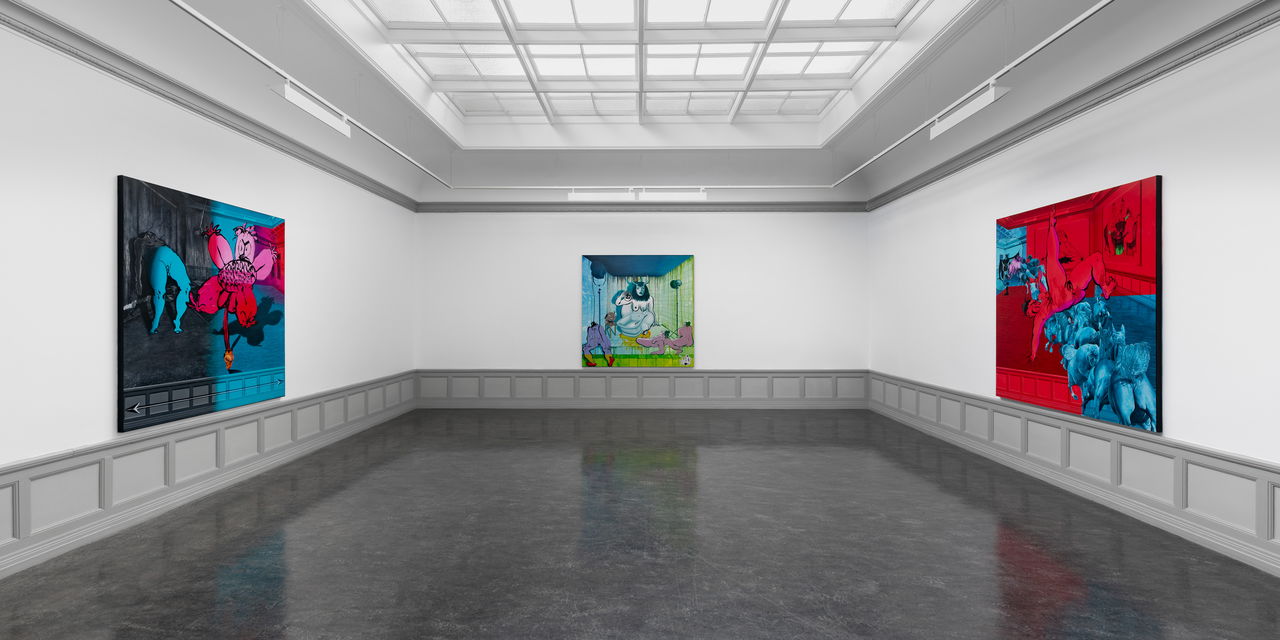
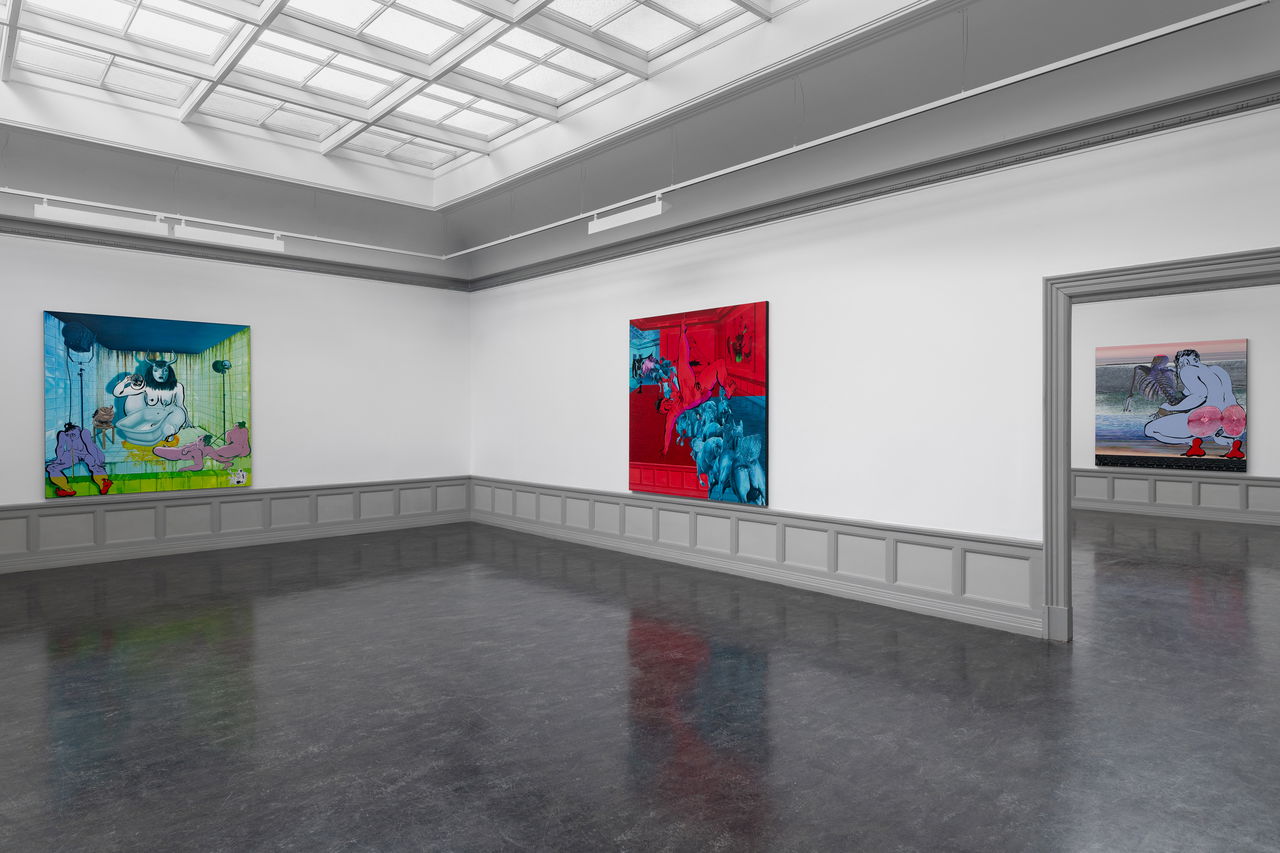
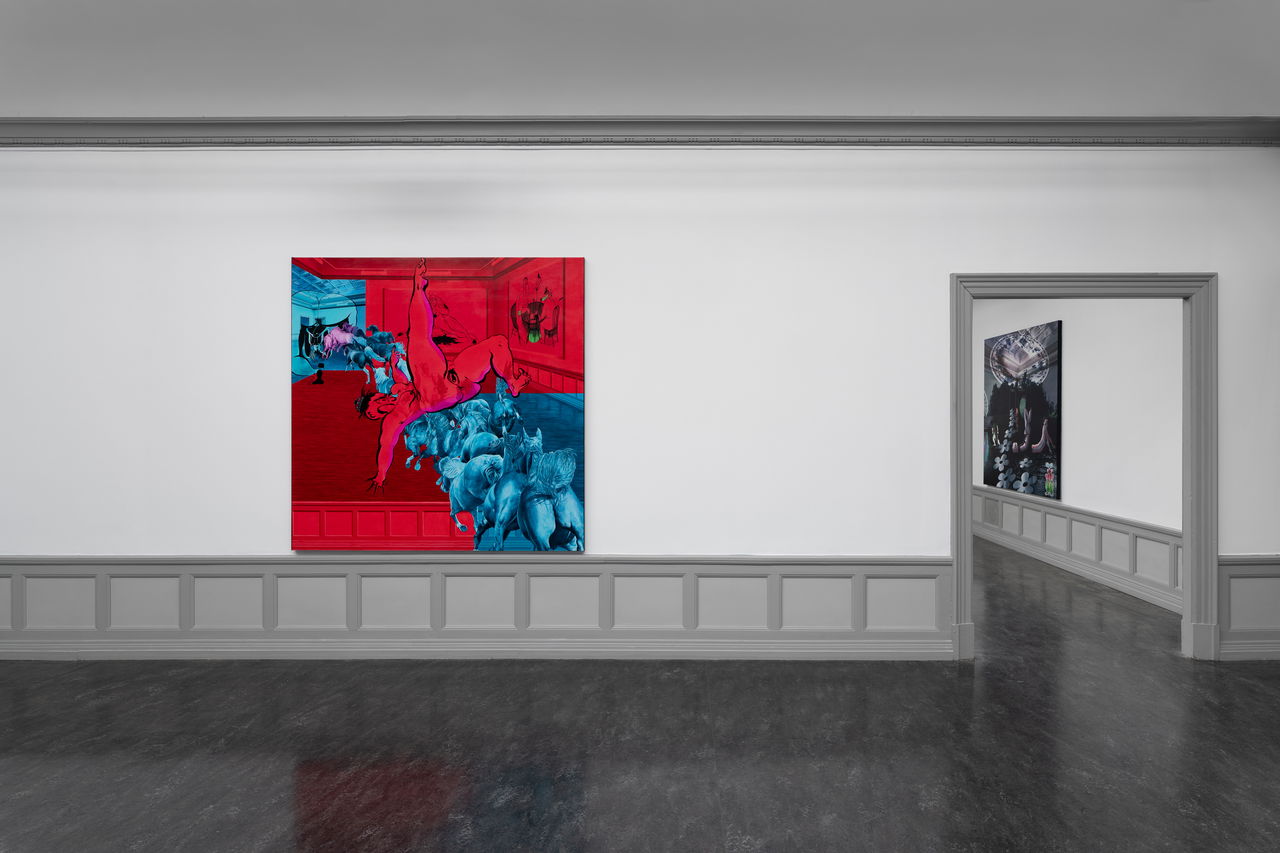
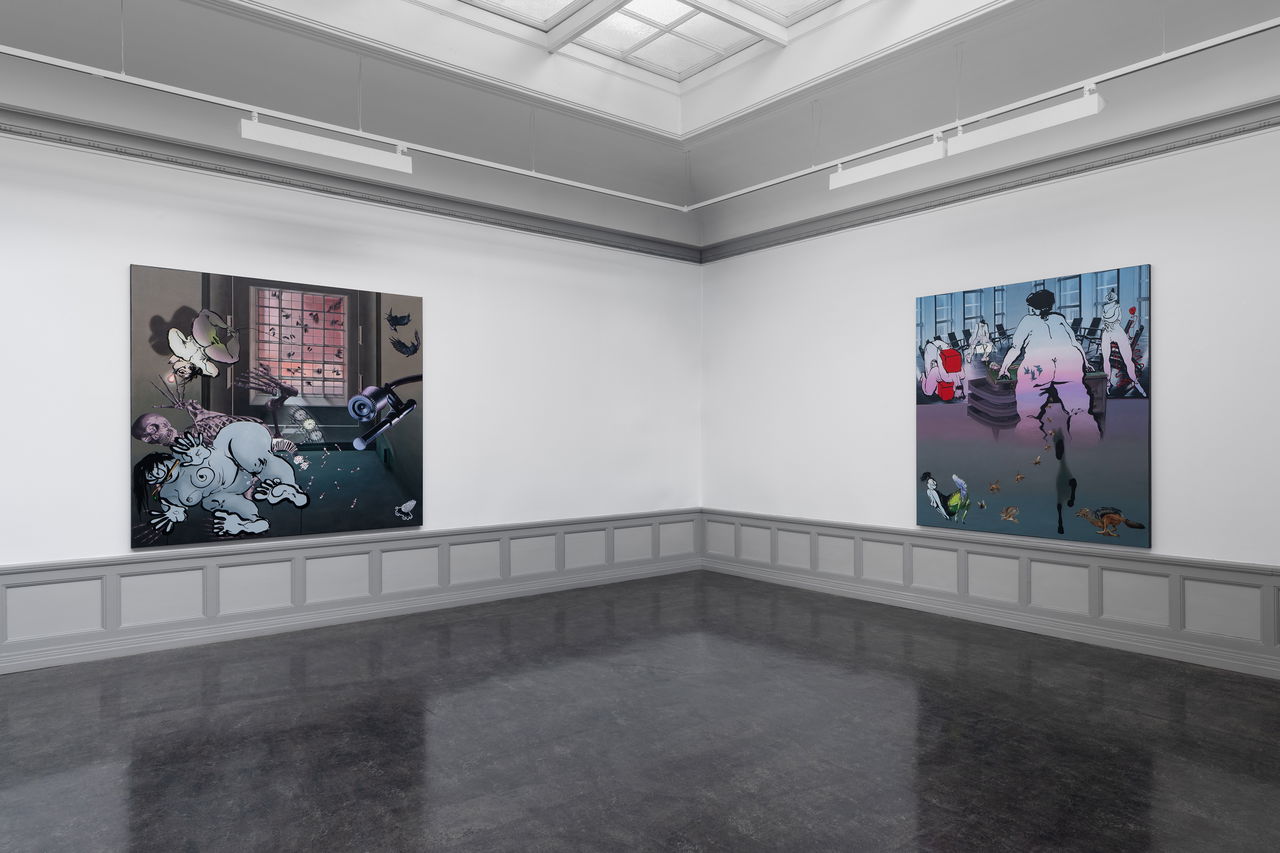
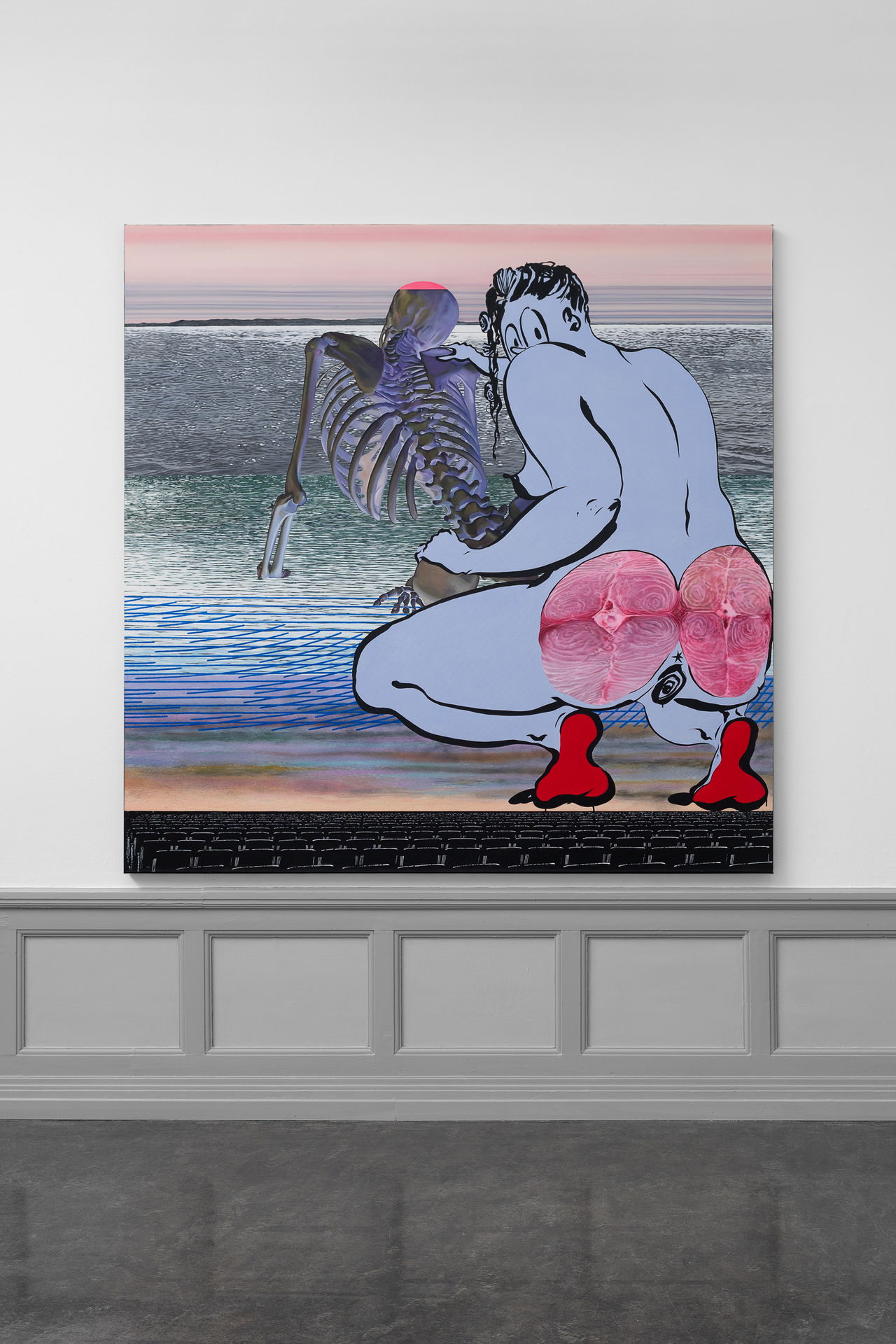
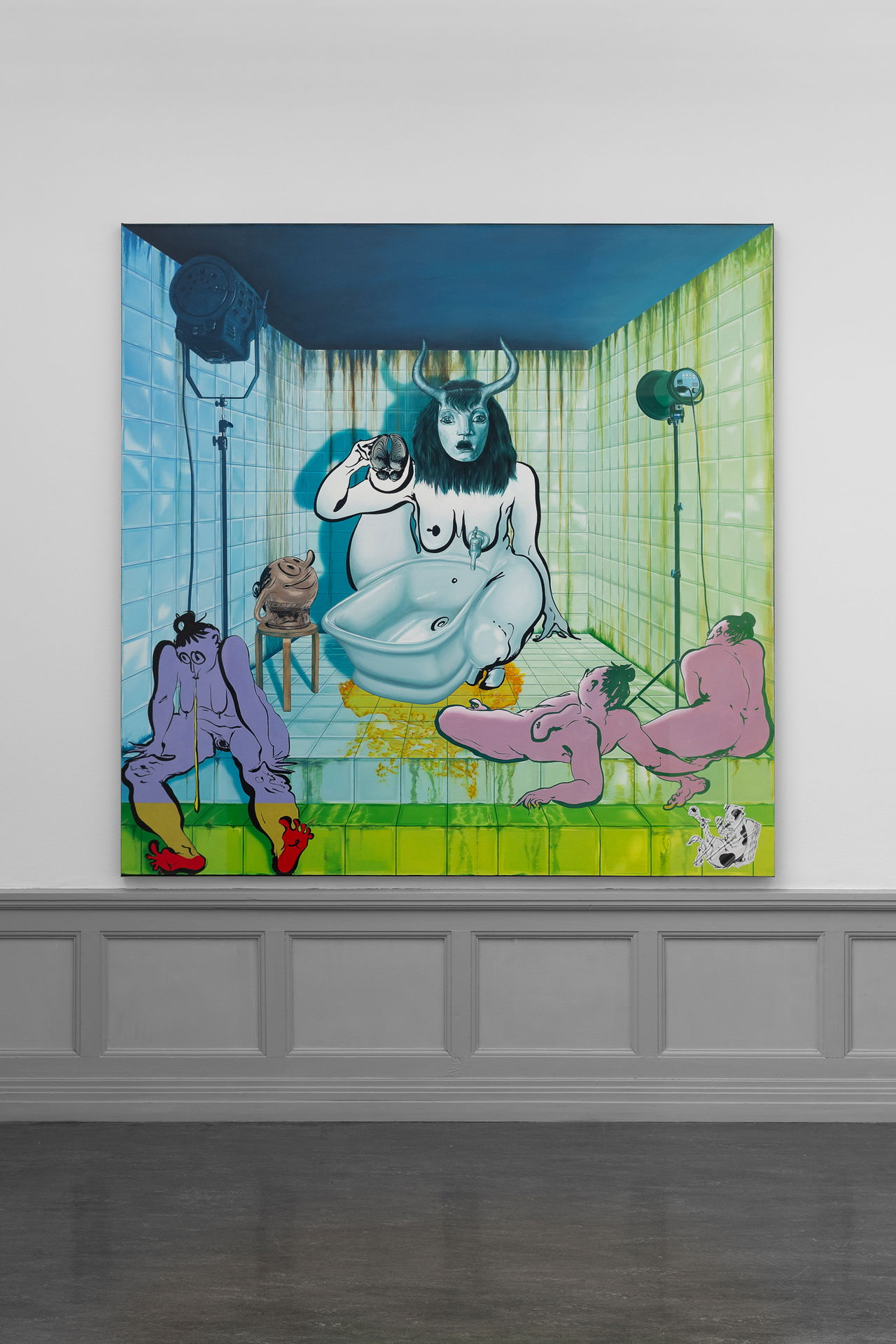
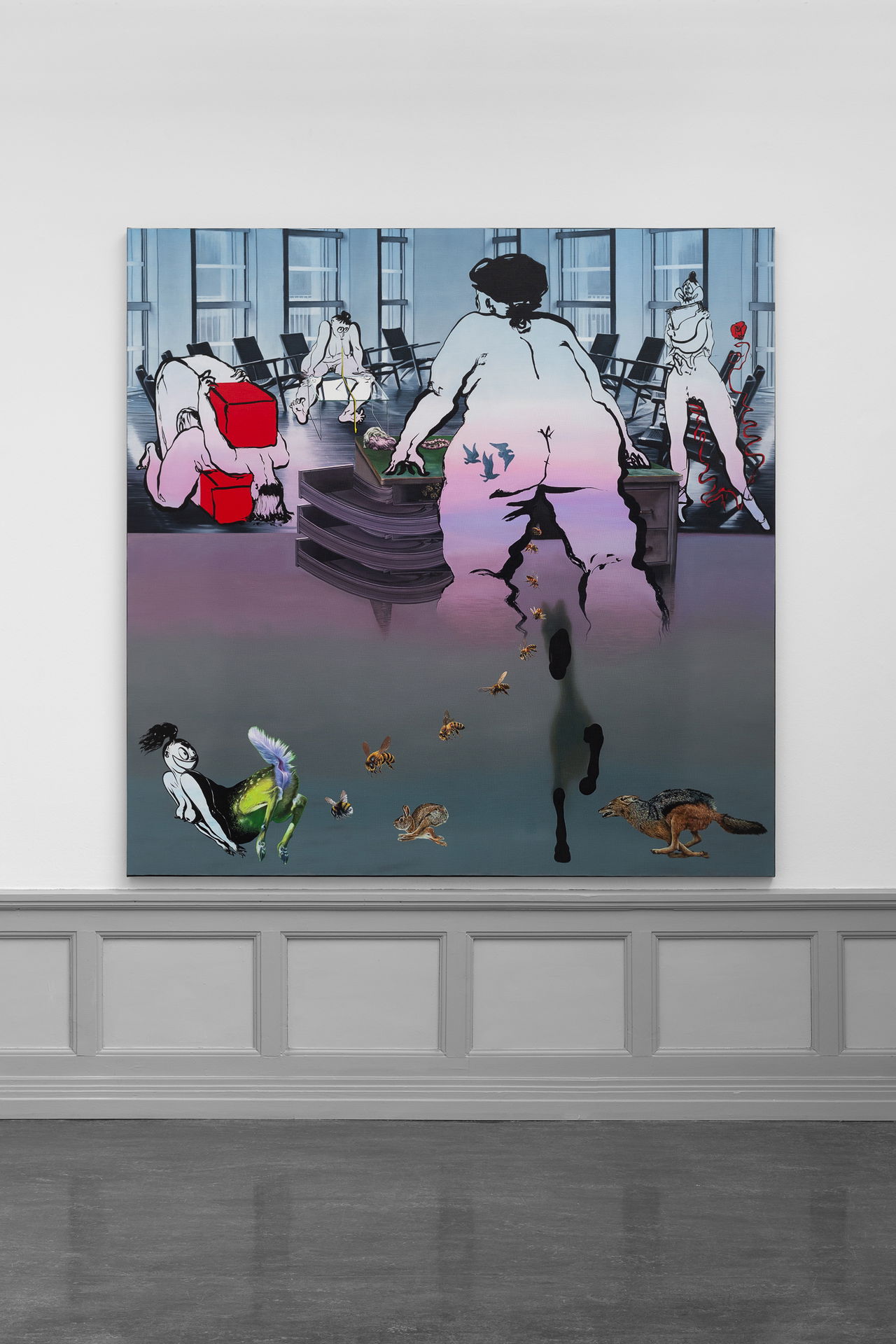
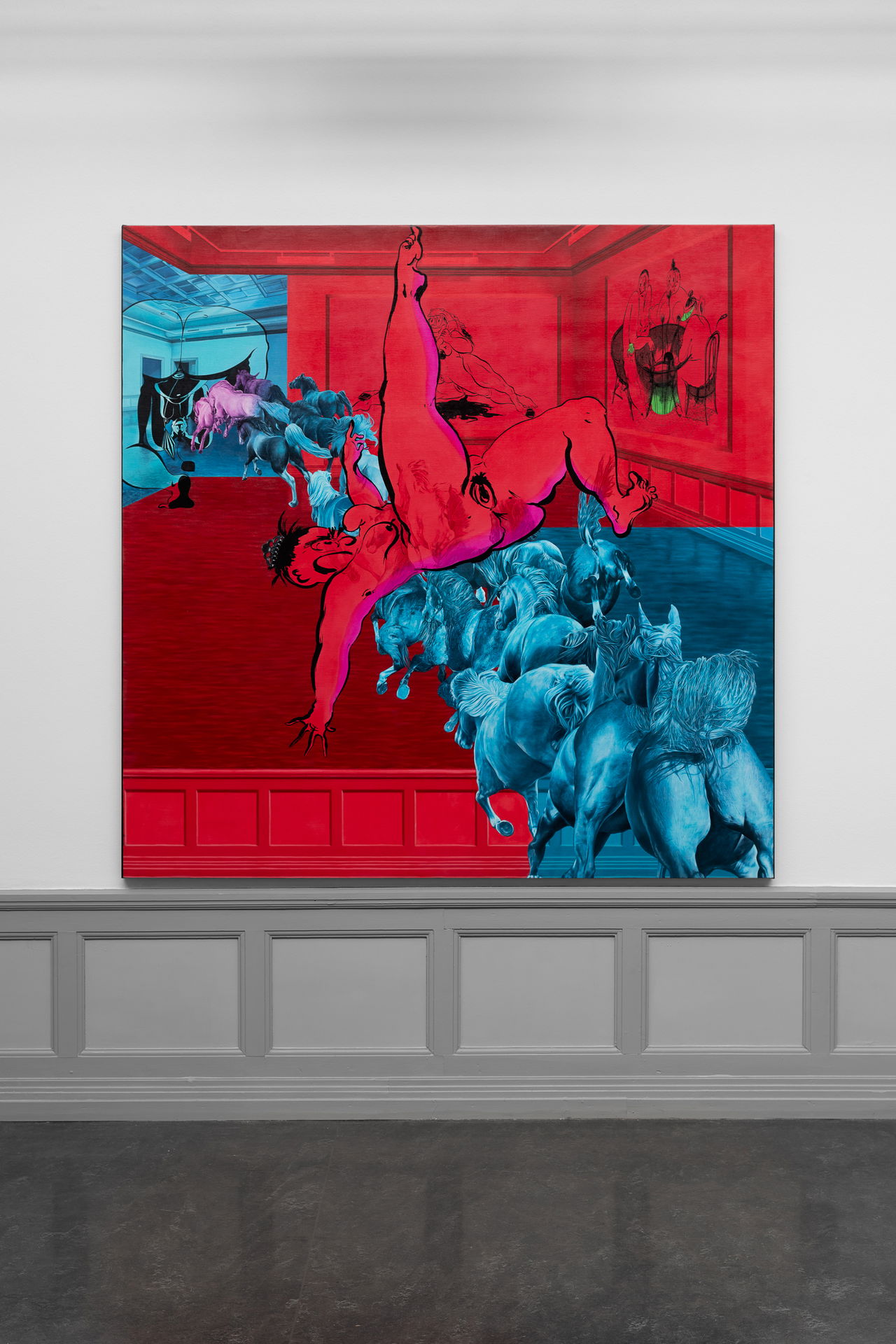
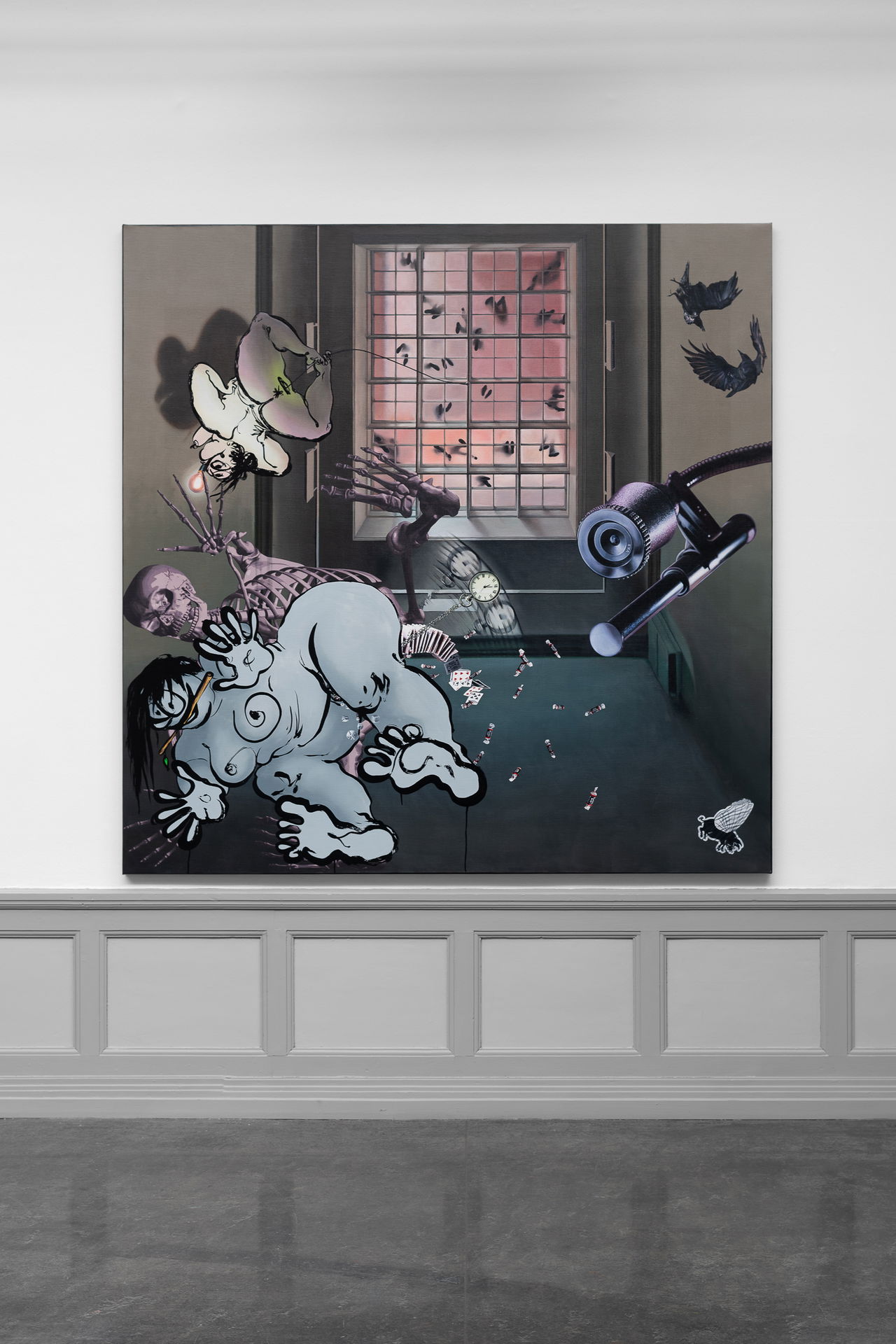
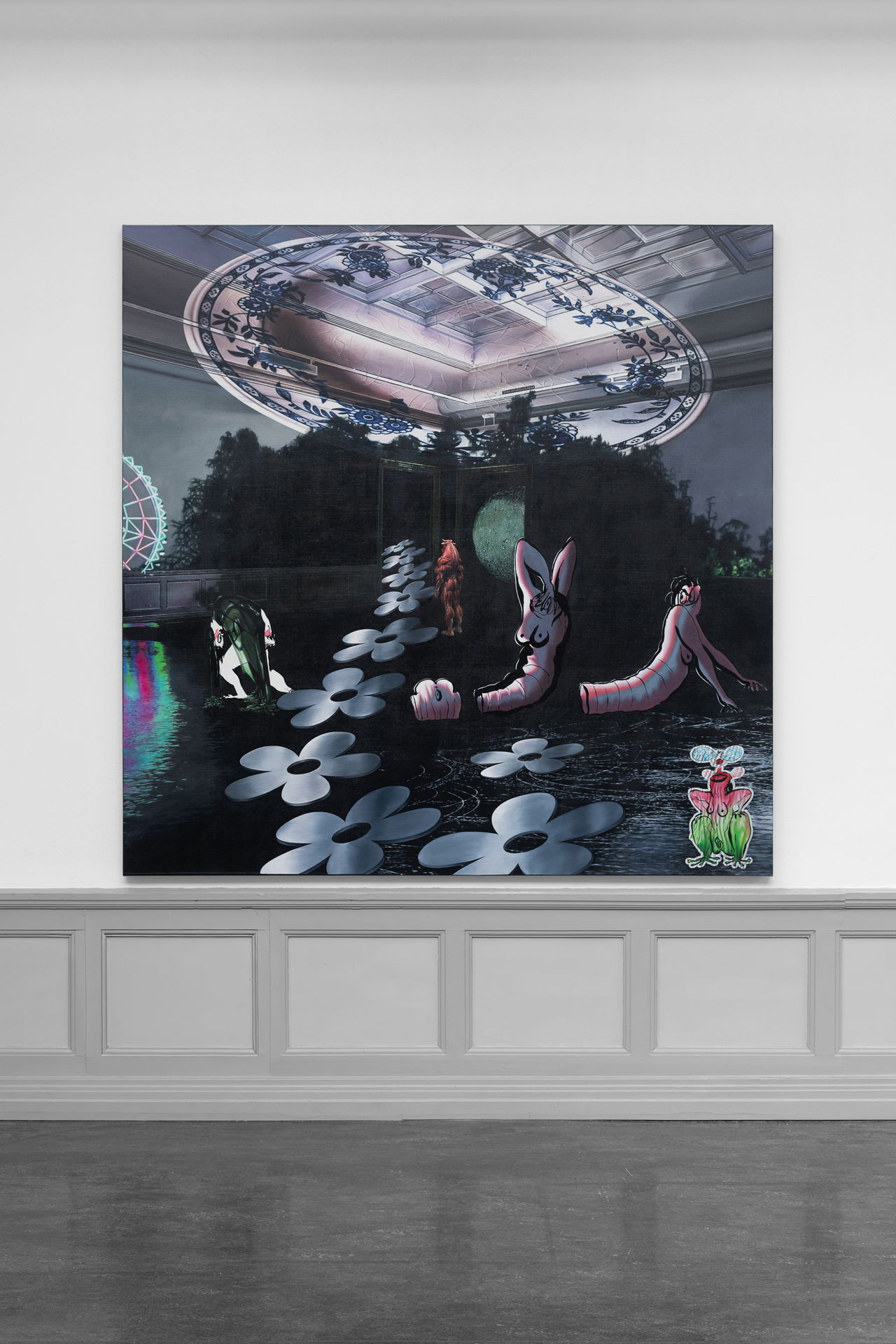
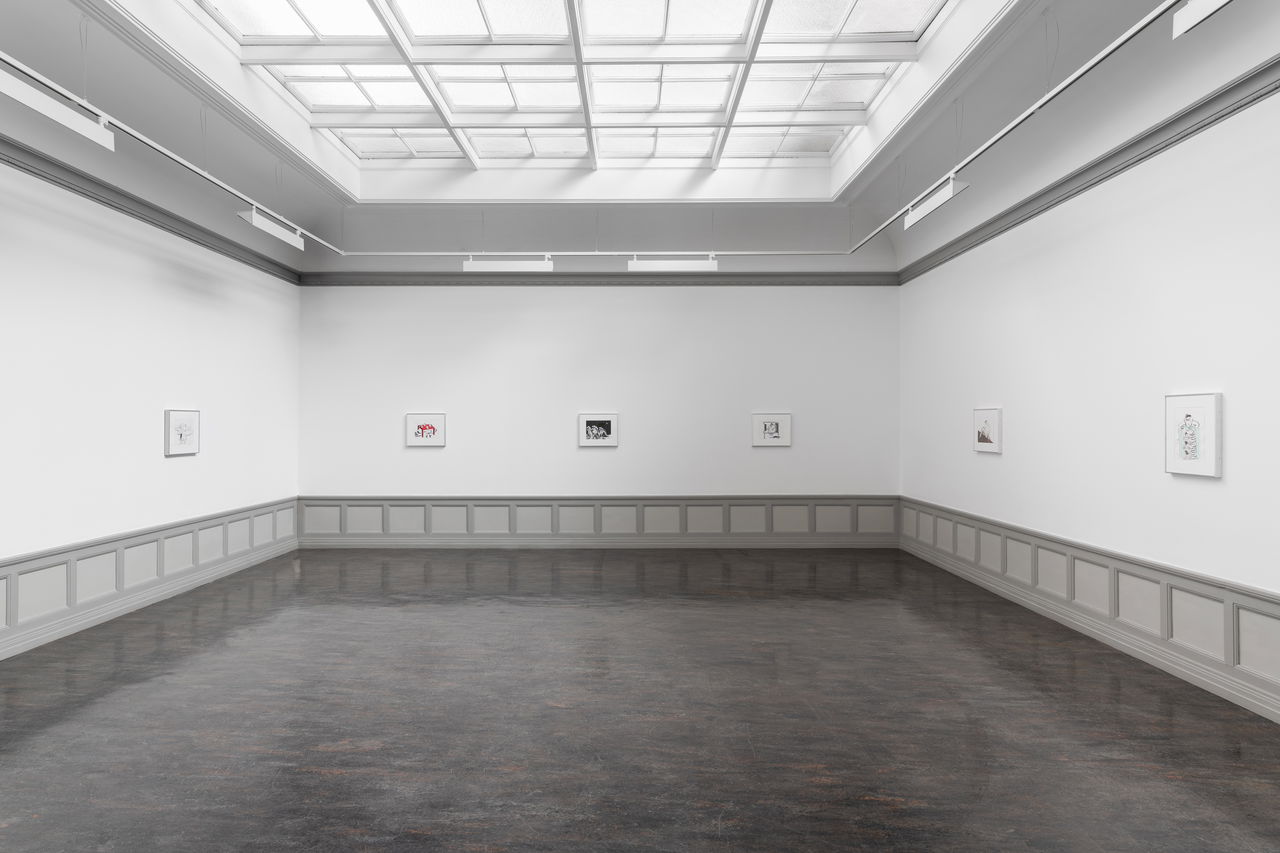
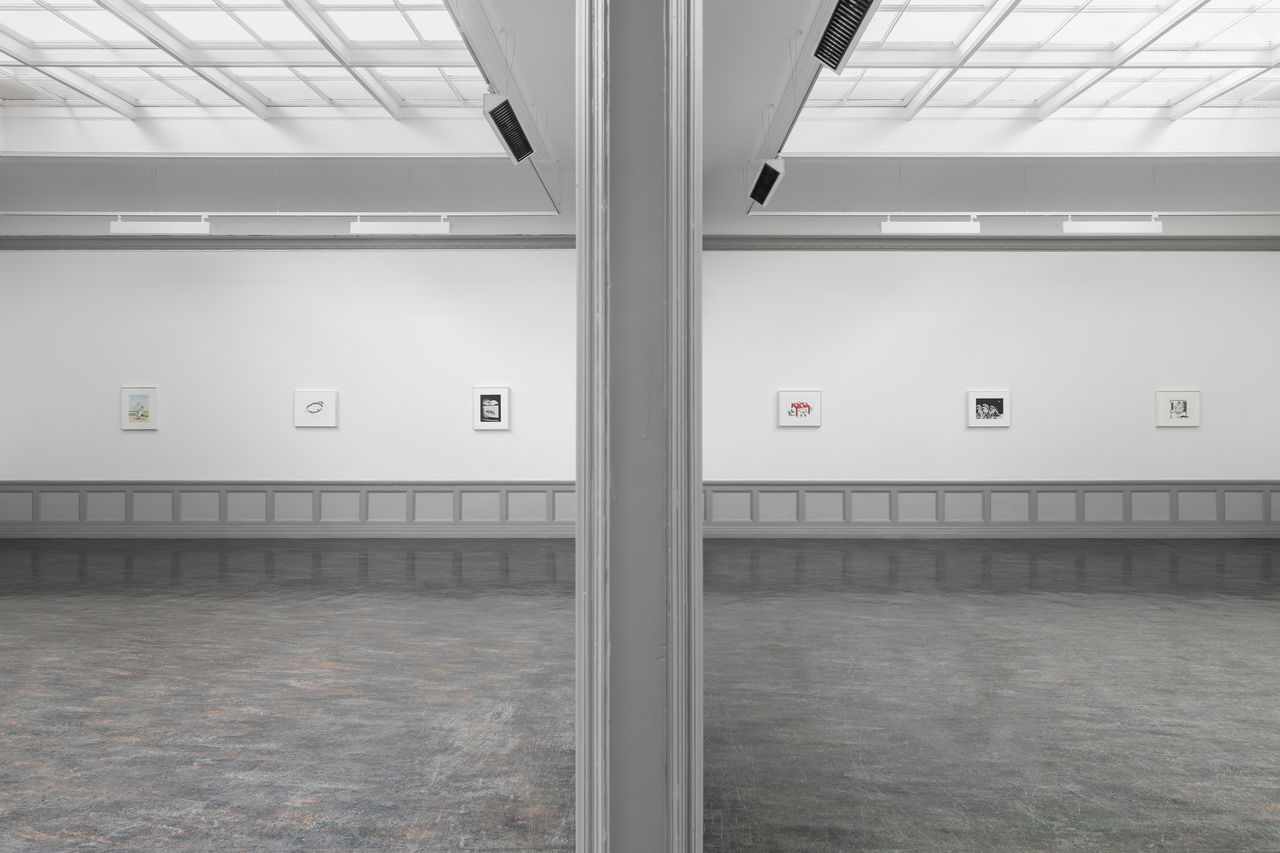
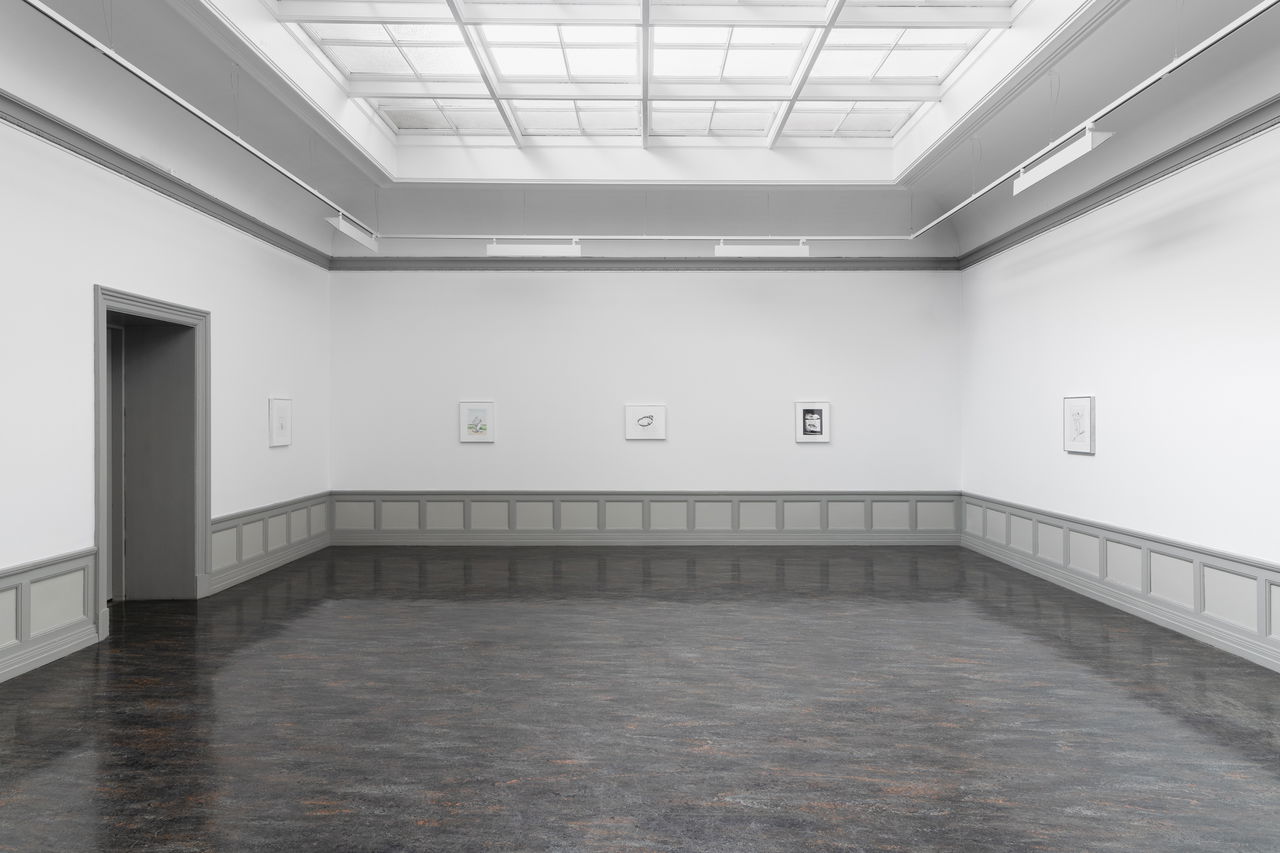
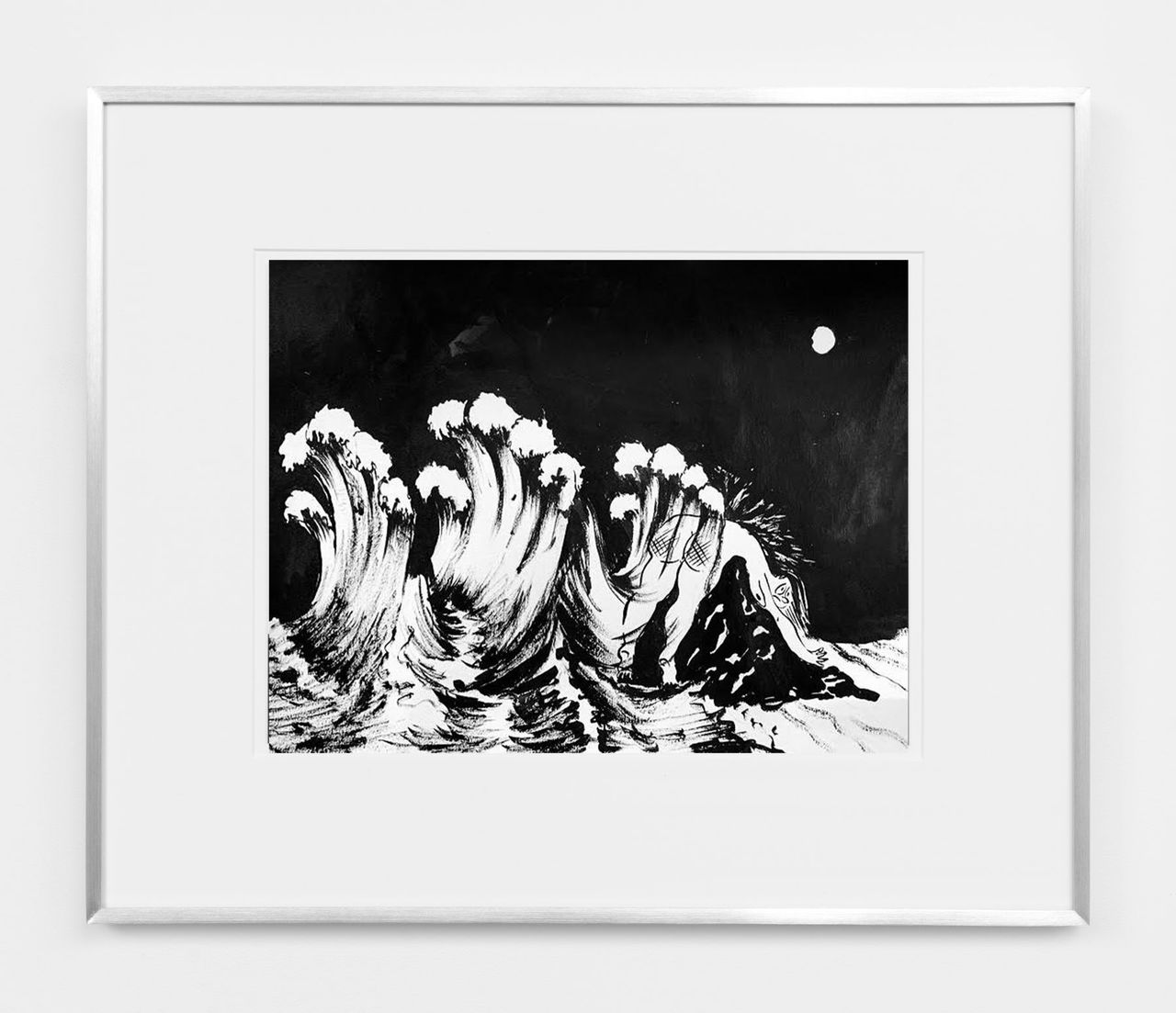
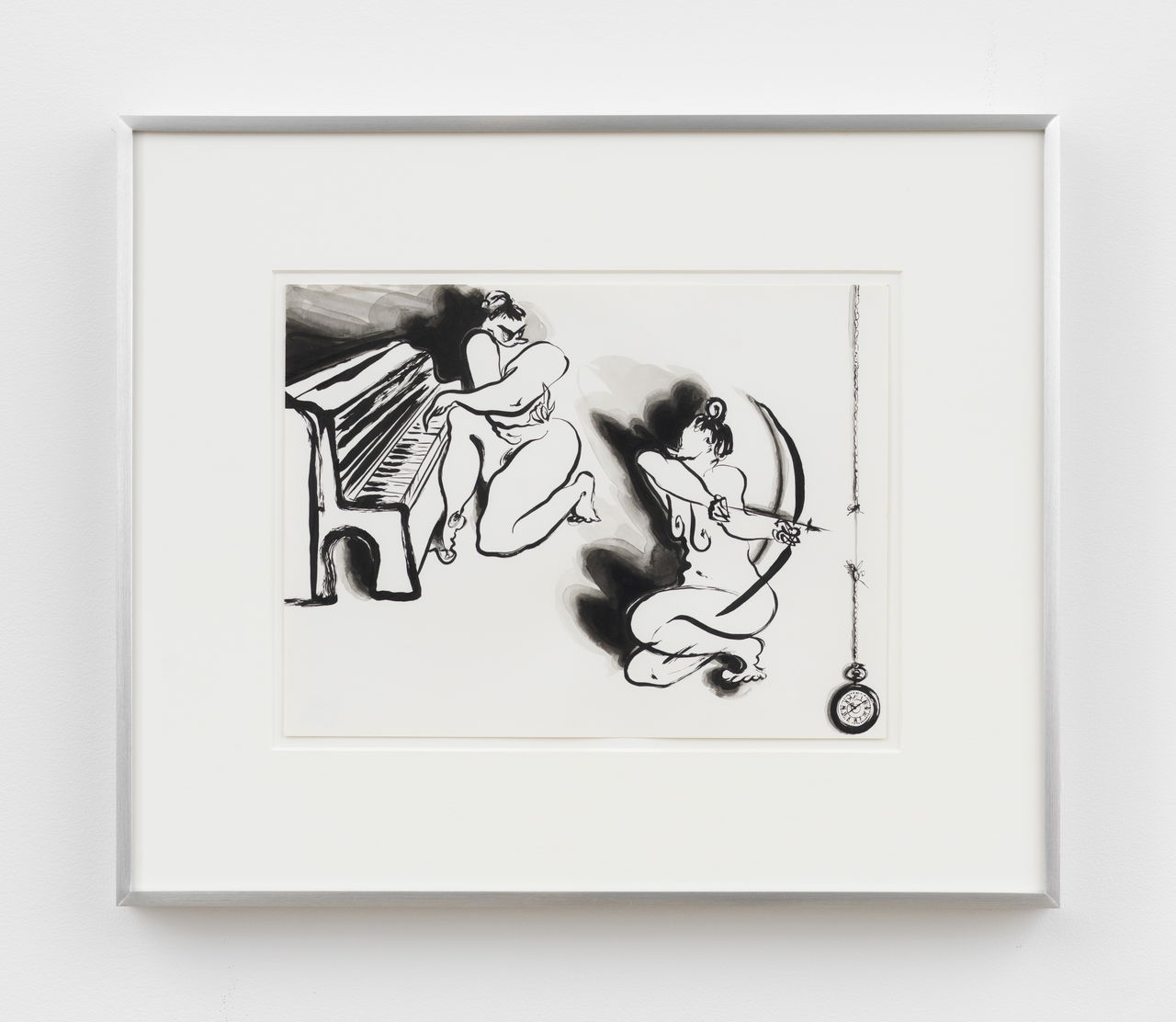
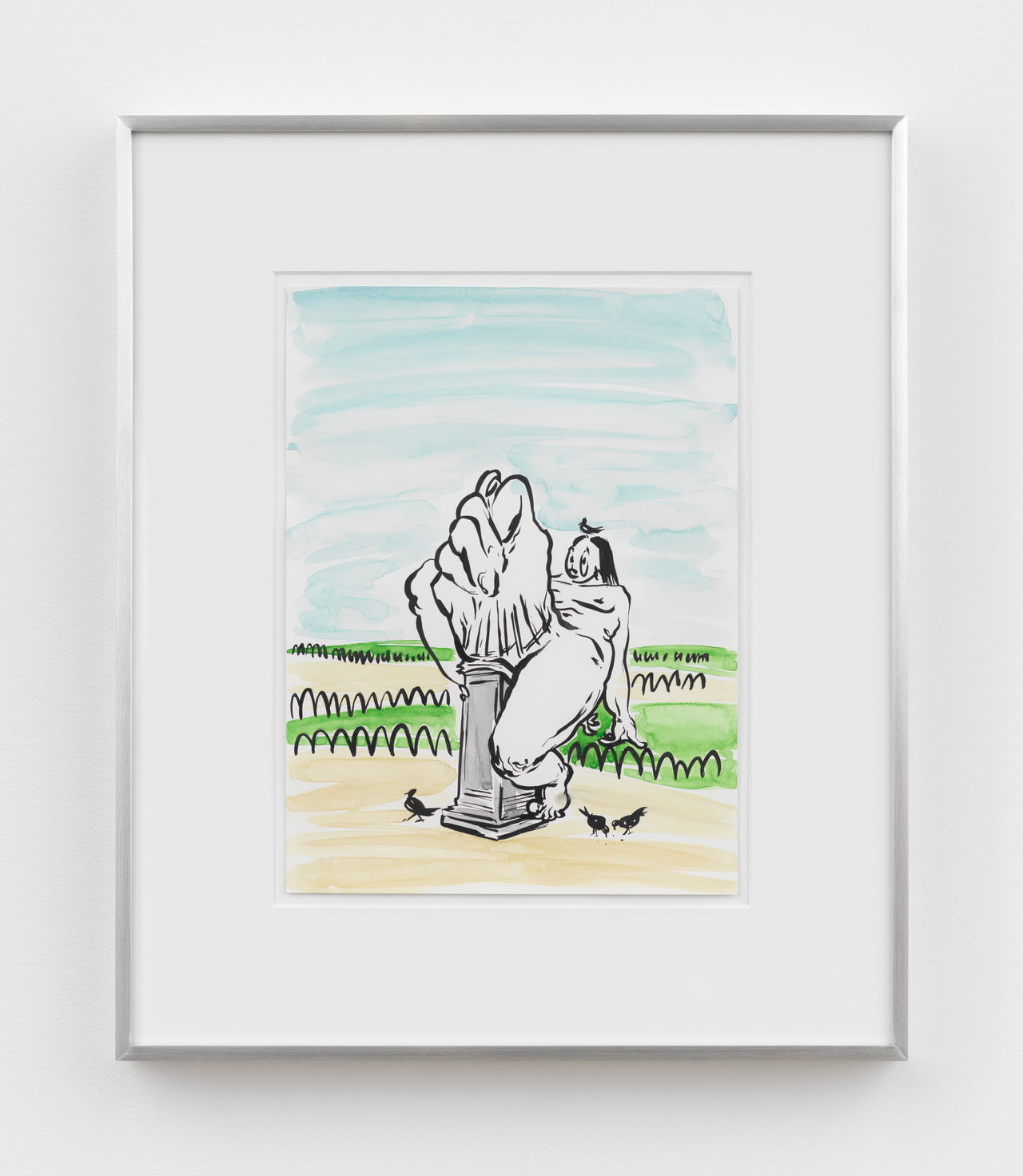
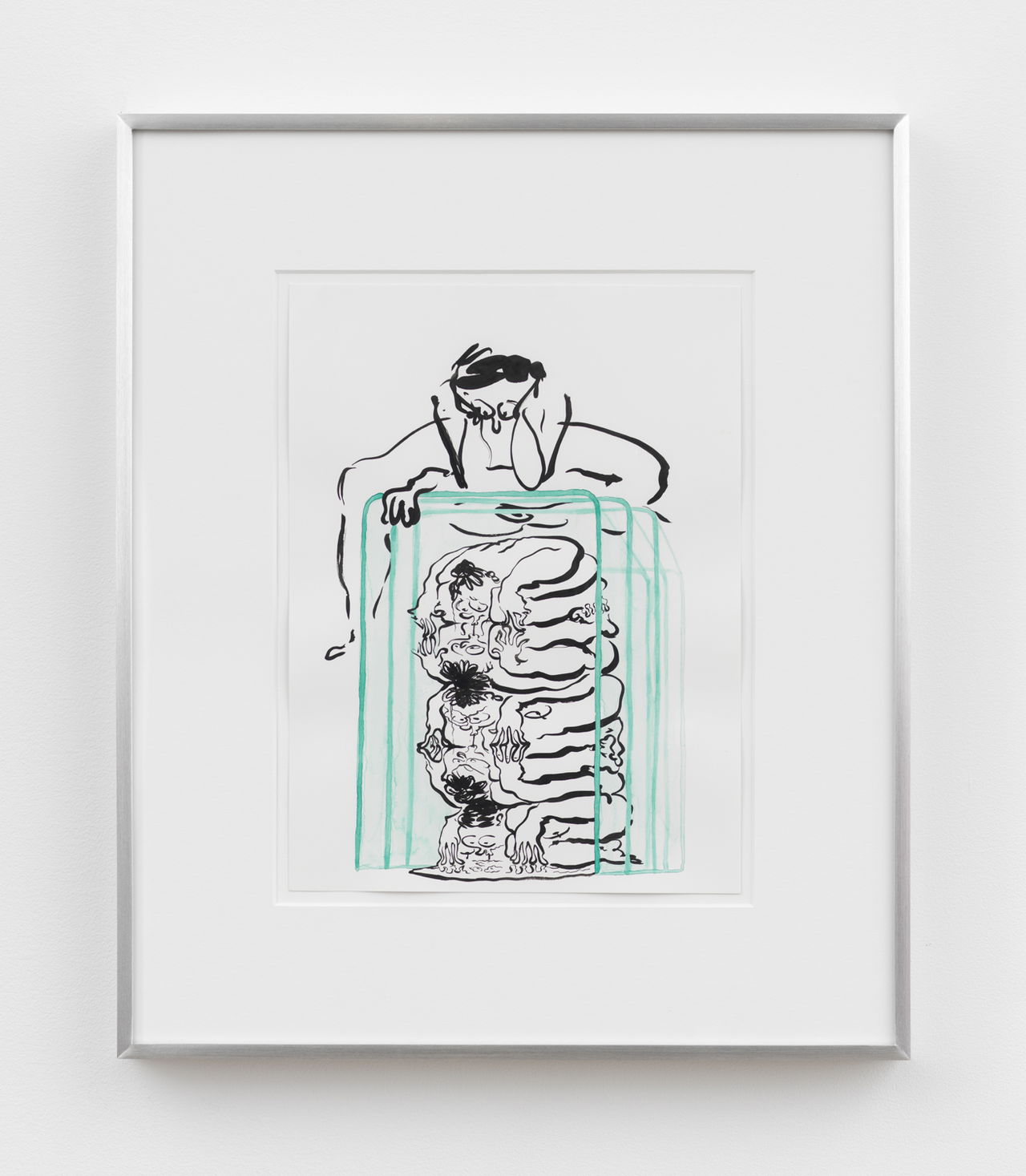
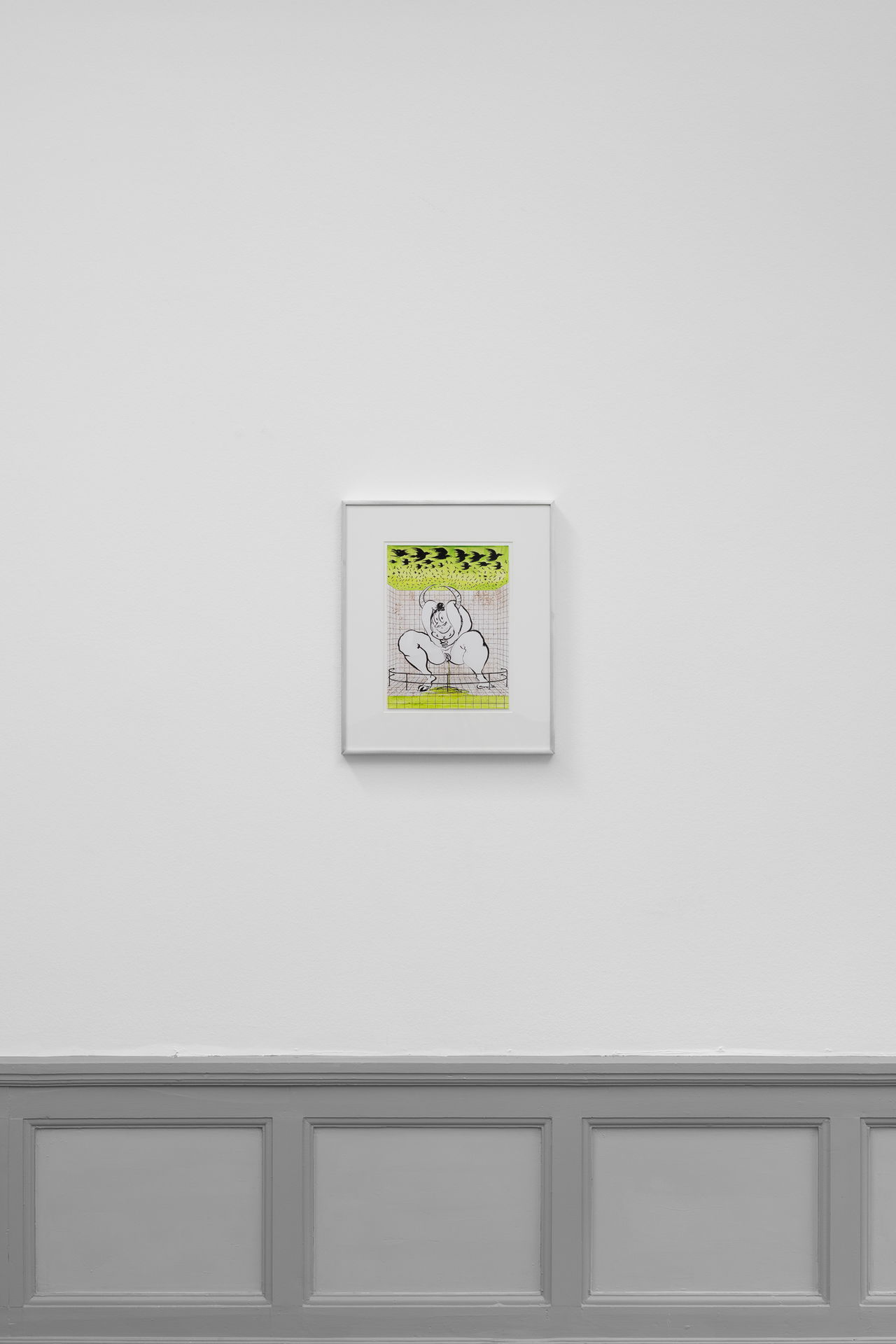
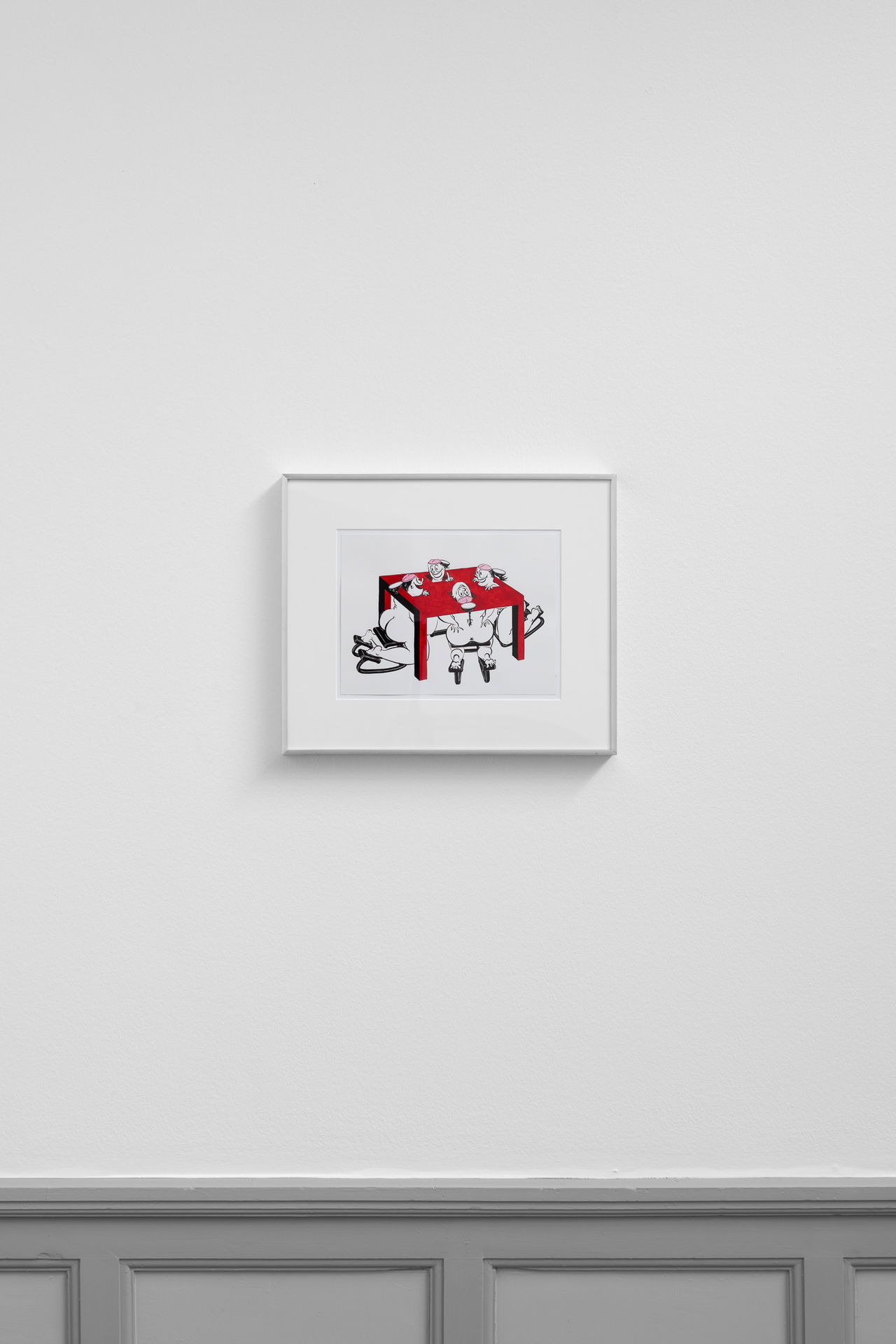
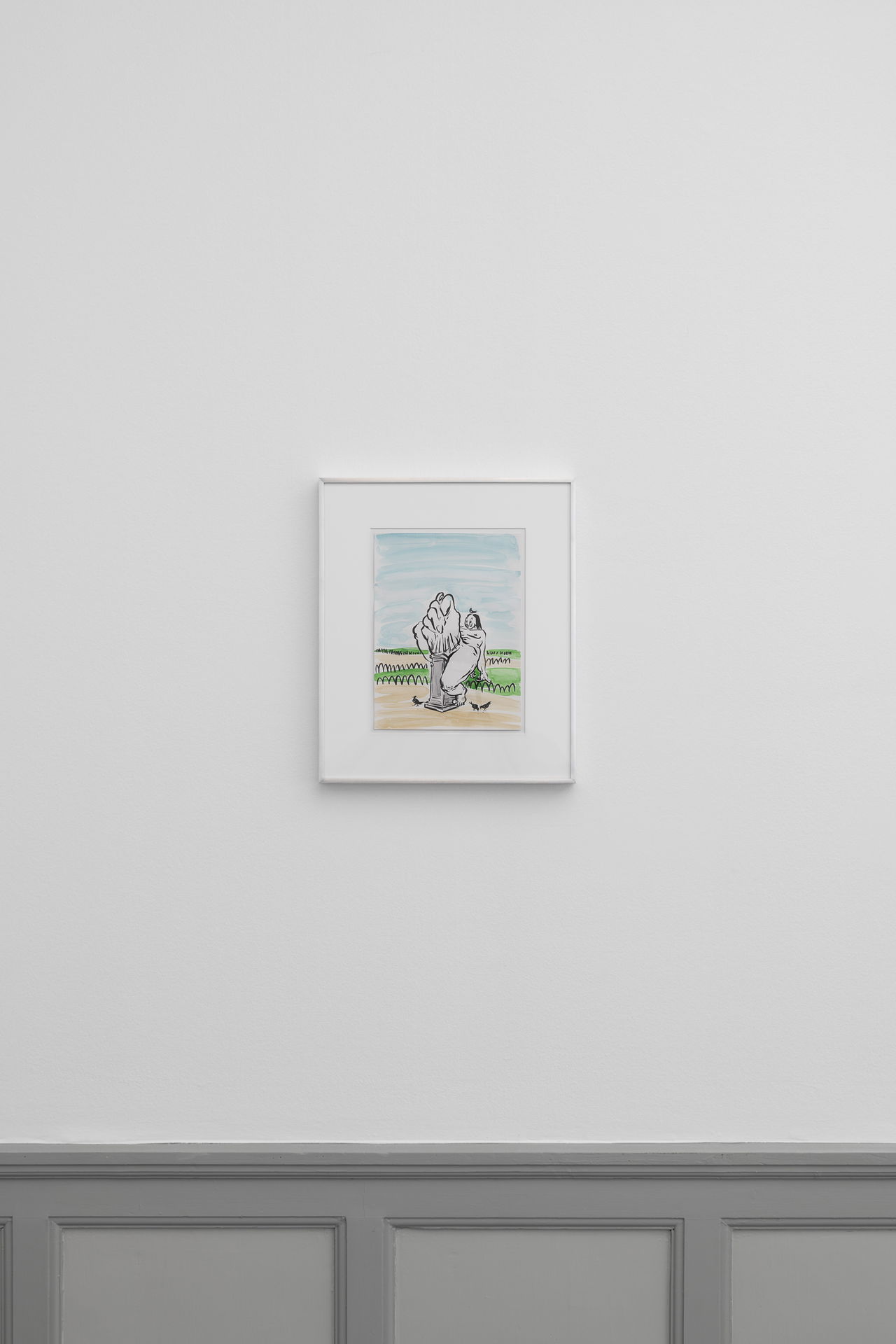
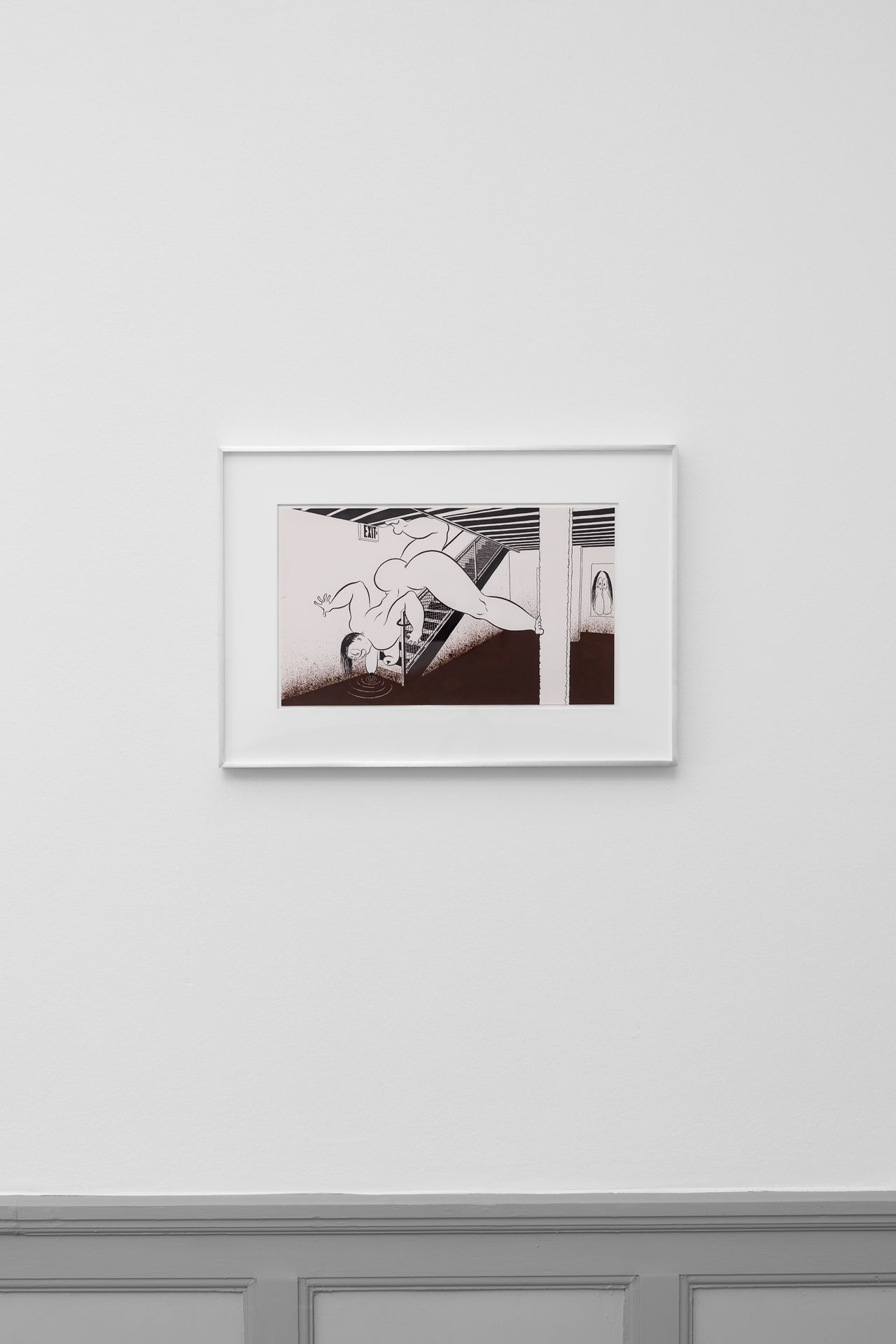
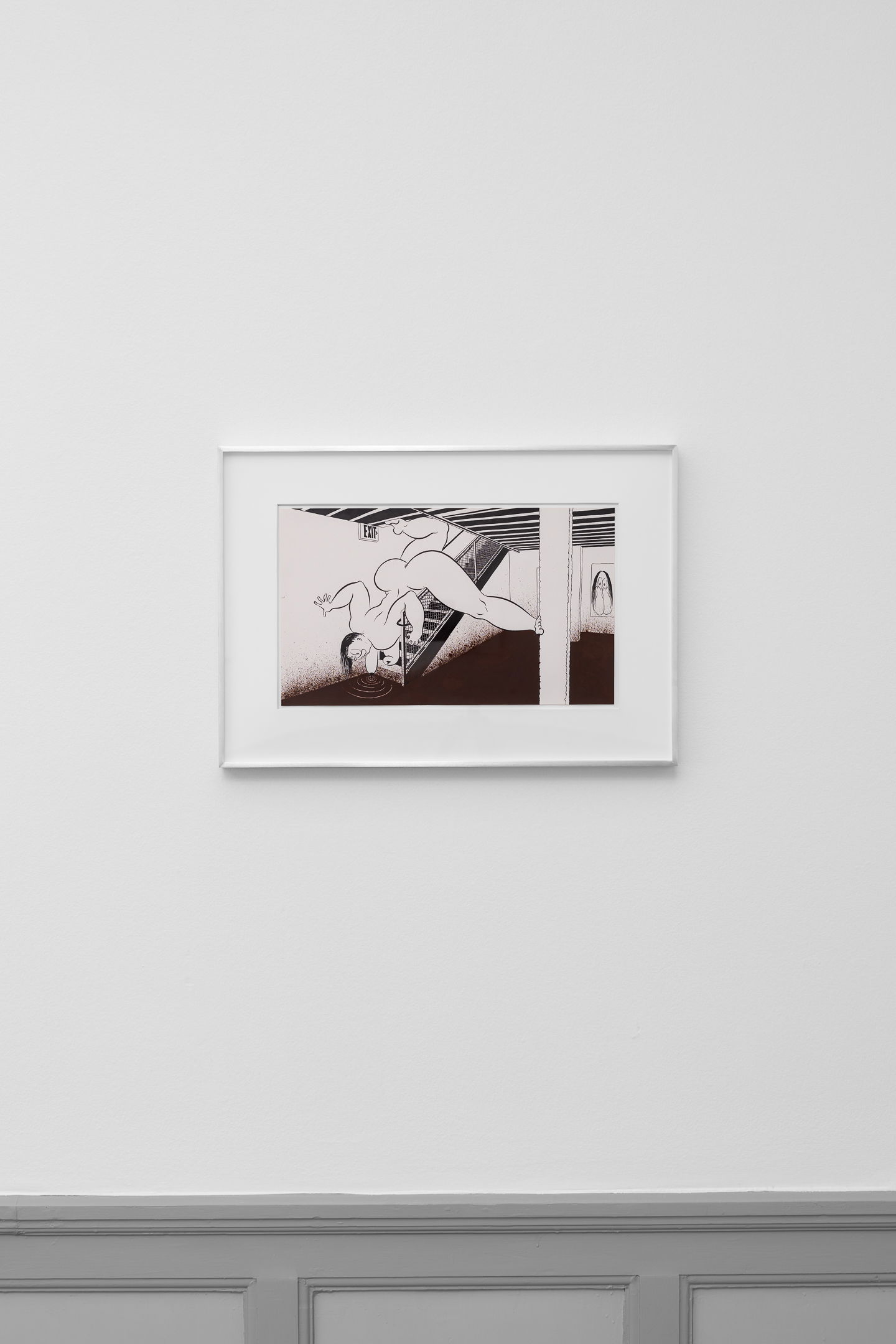
Fatebe 2017 Show (2017), ink and gouache on paper, 26.7×45.1 cm. Photo: Erik Sæter Jørgensen.
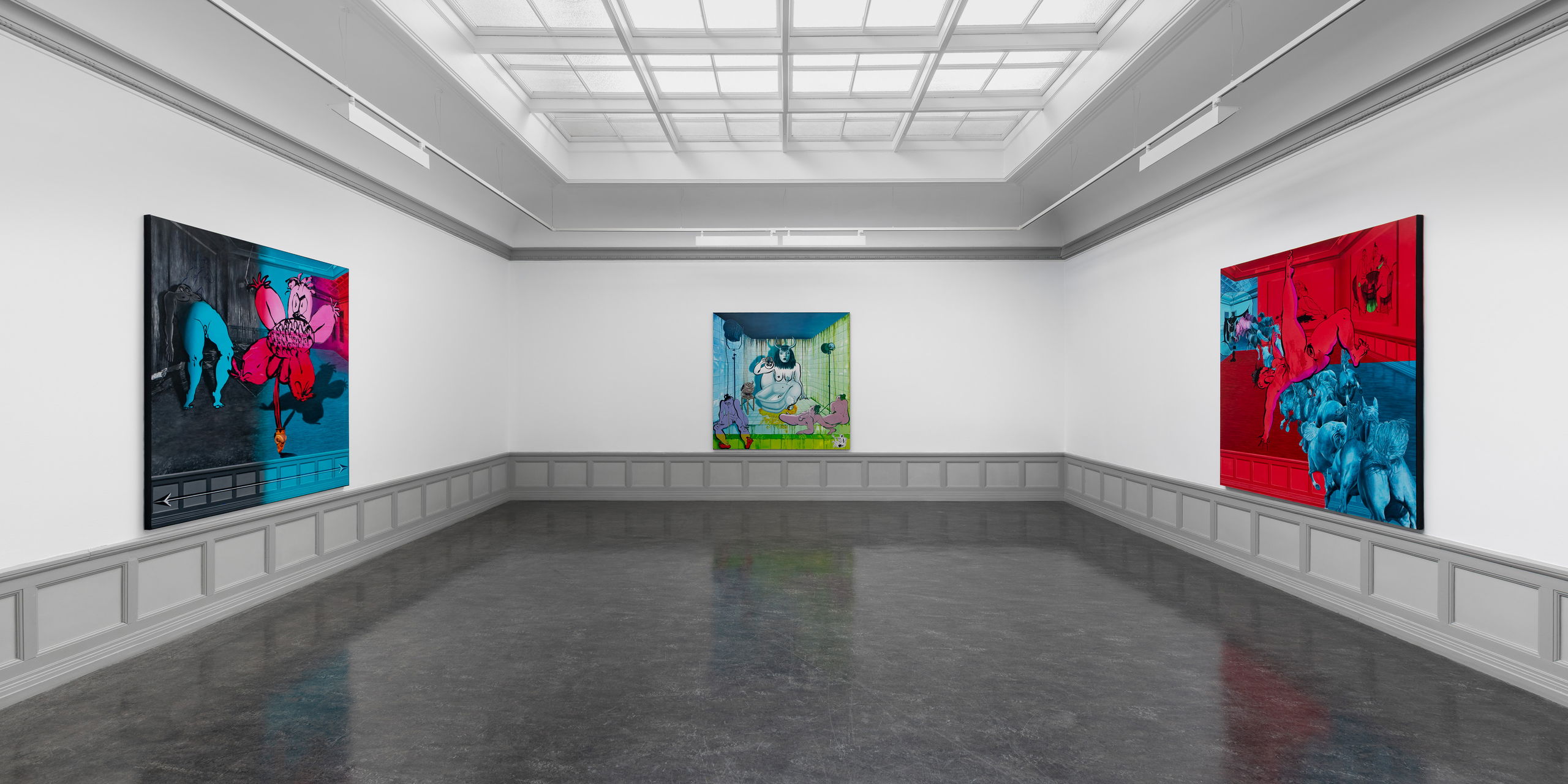
Ebecho Muslimova, Fatebe Shadows (2025), installation view. Photo: Erik Sæter Jørgensen.
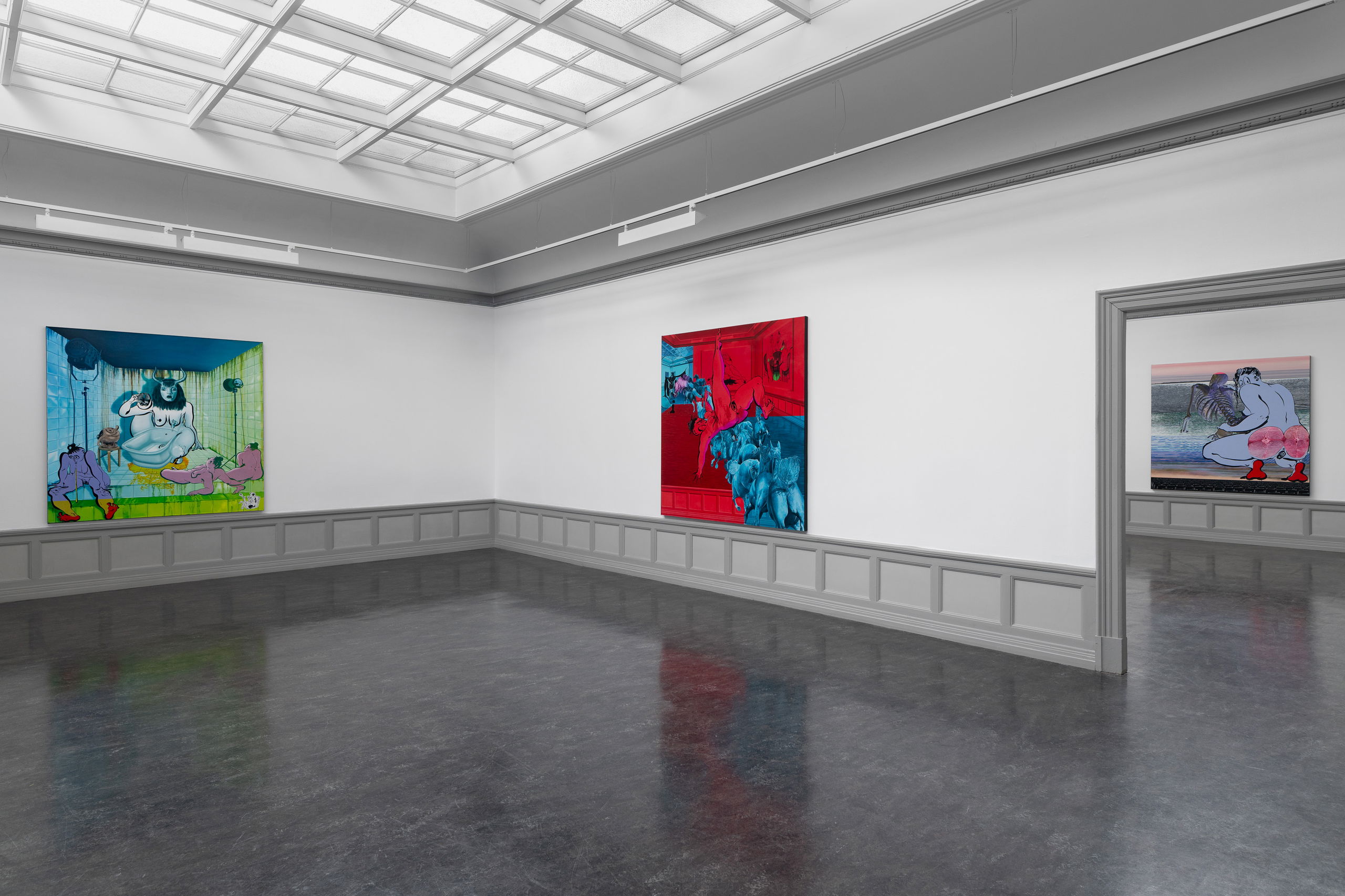
Ebecho Muslimova, Fatebe Shadows (2025), installation view. Photo: Erik Sæter Jørgensen.
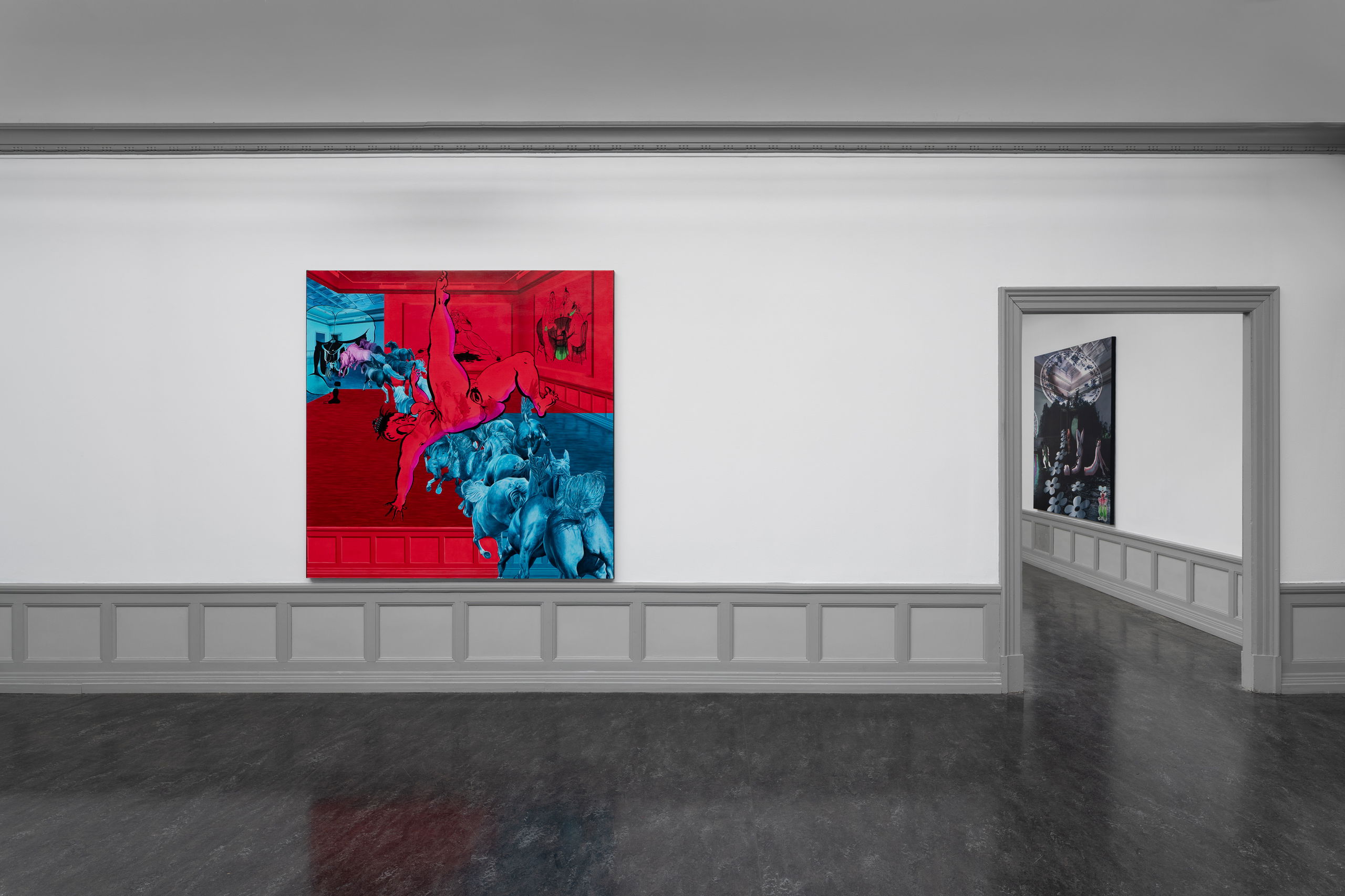
Ebecho Muslimova, Fatebe Shadows (2025), installation view. Photo: Erik Sæter Jørgensen.
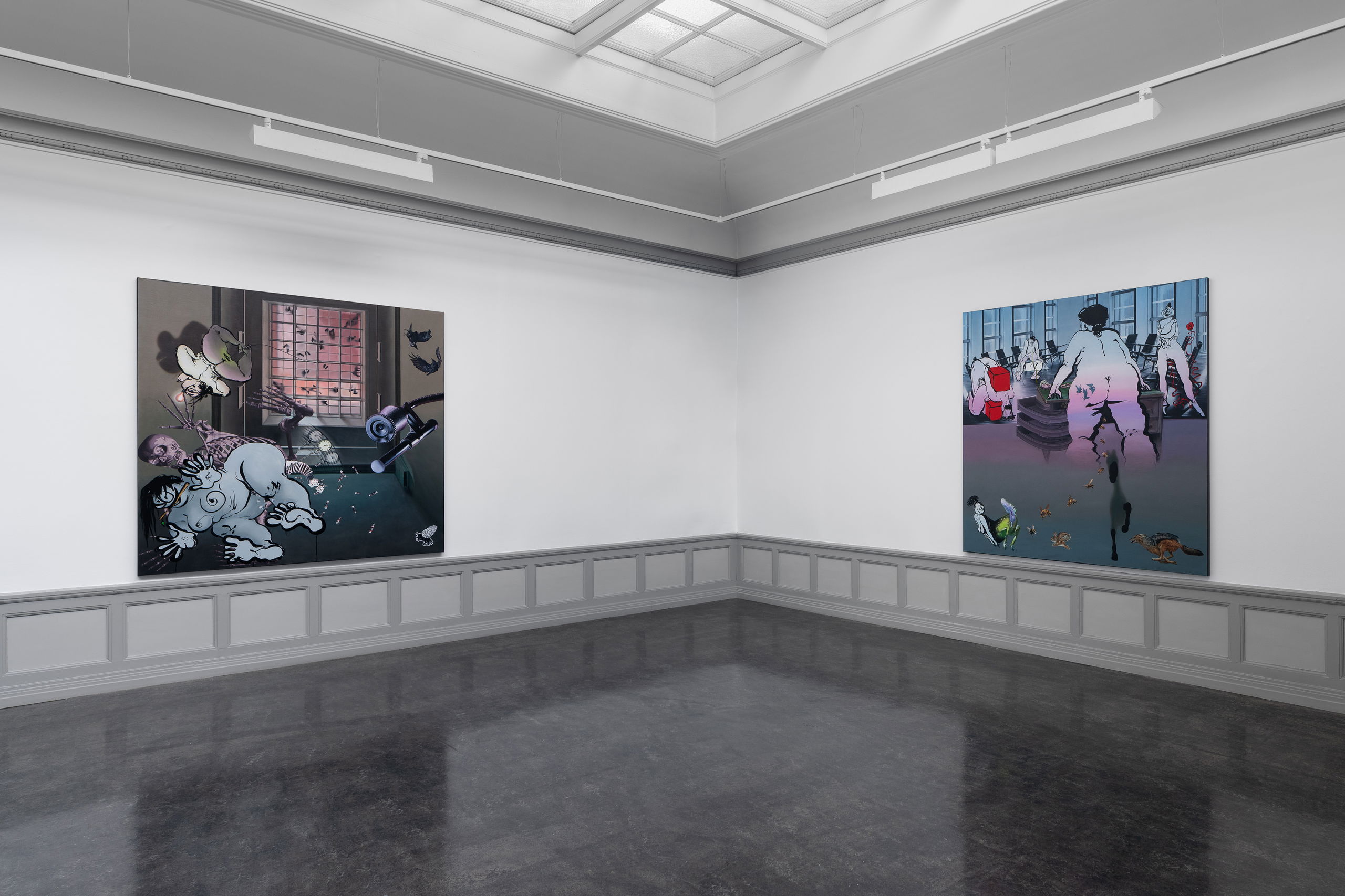
Ebecho Muslimova, Fatebe Shadows (2025), installation view. Photo: Erik Sæter Jørgensen.
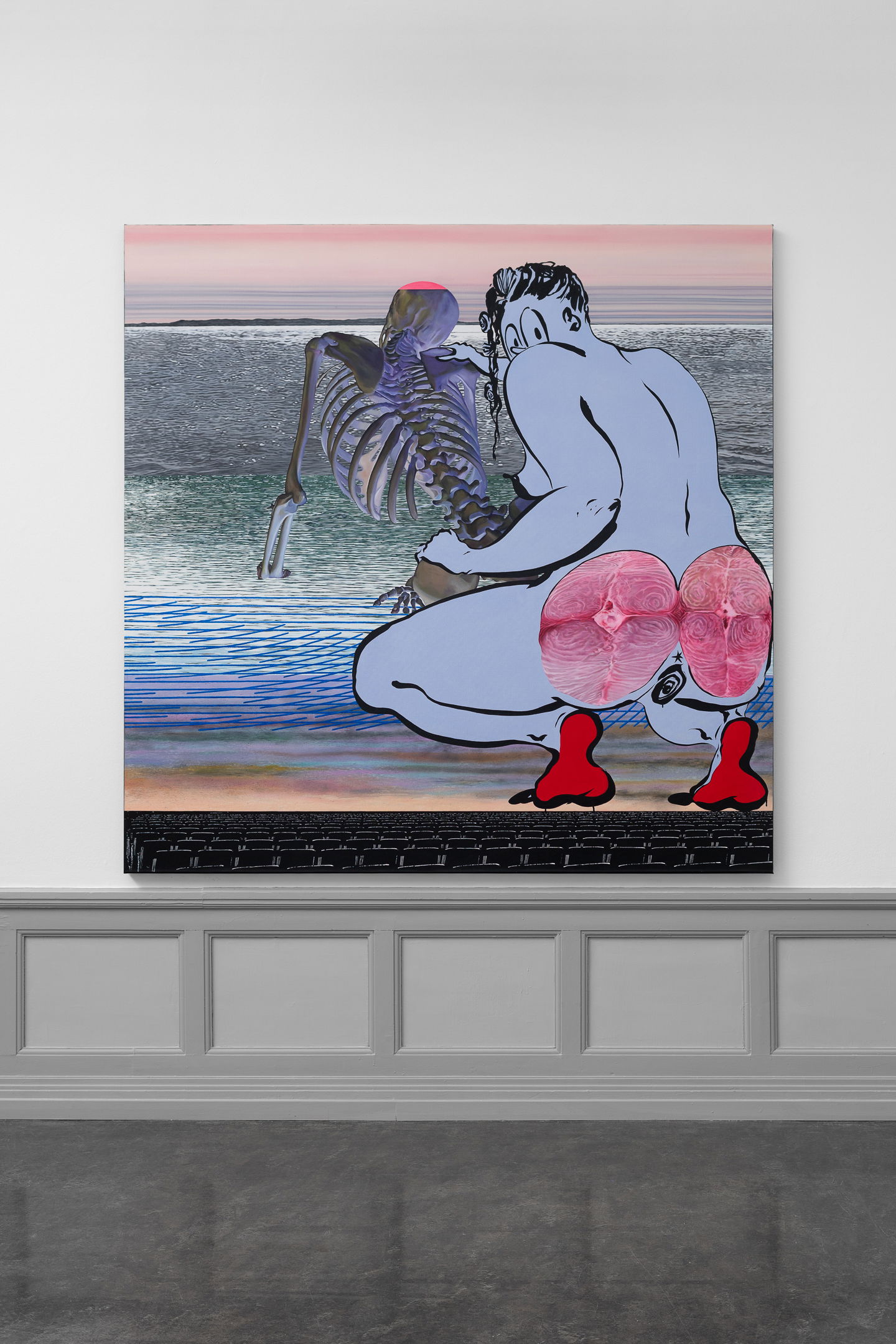
Fatebe Sliced Sunset (2024), oil on canvas, 182.9×182.9 cm. Photo: Erik Sæter Jørgensen.
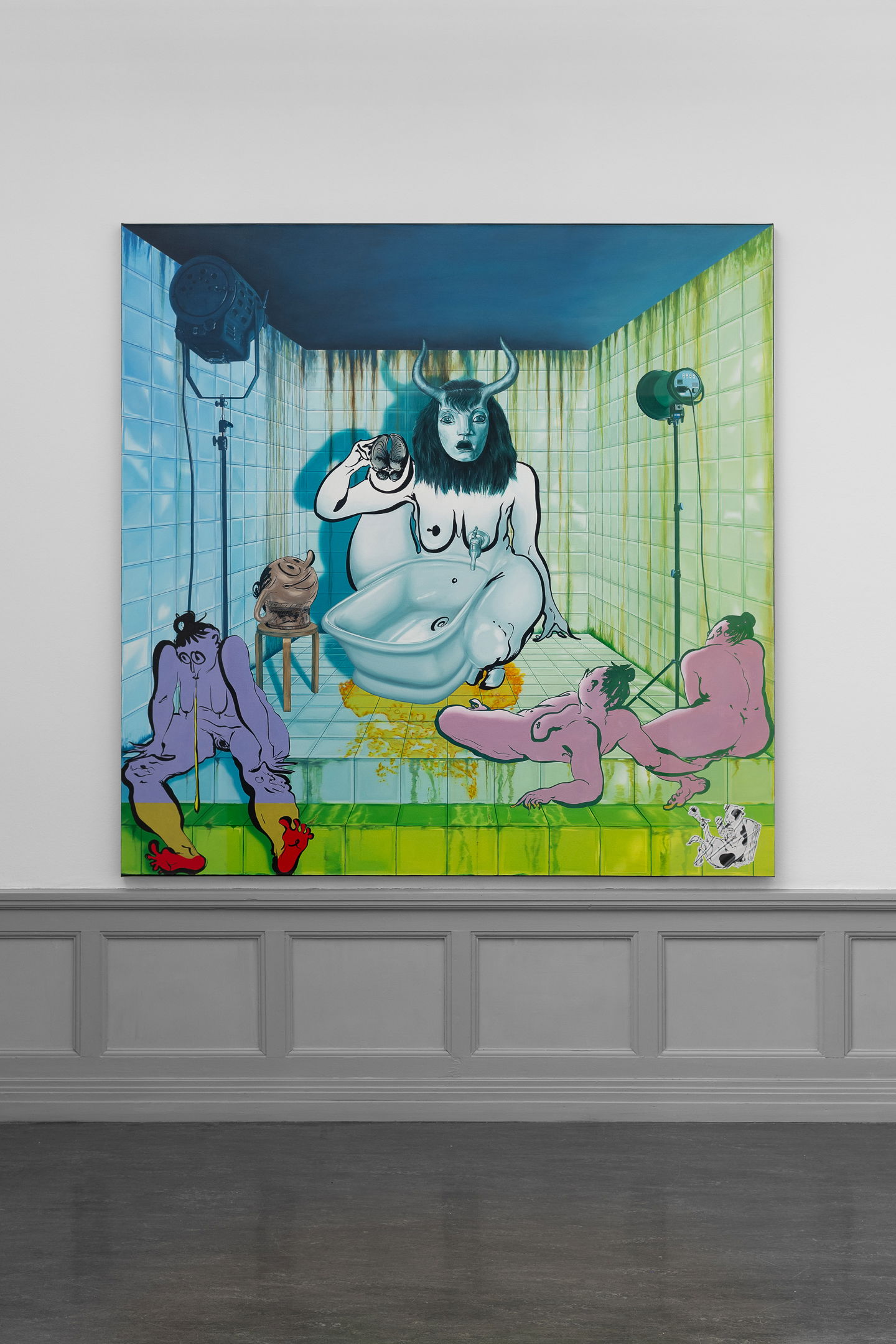
Fatebe Io Stalled (2024), oil on canvas, 182.9×182.9 cm. Photo: Erik Sæter Jørgensen.
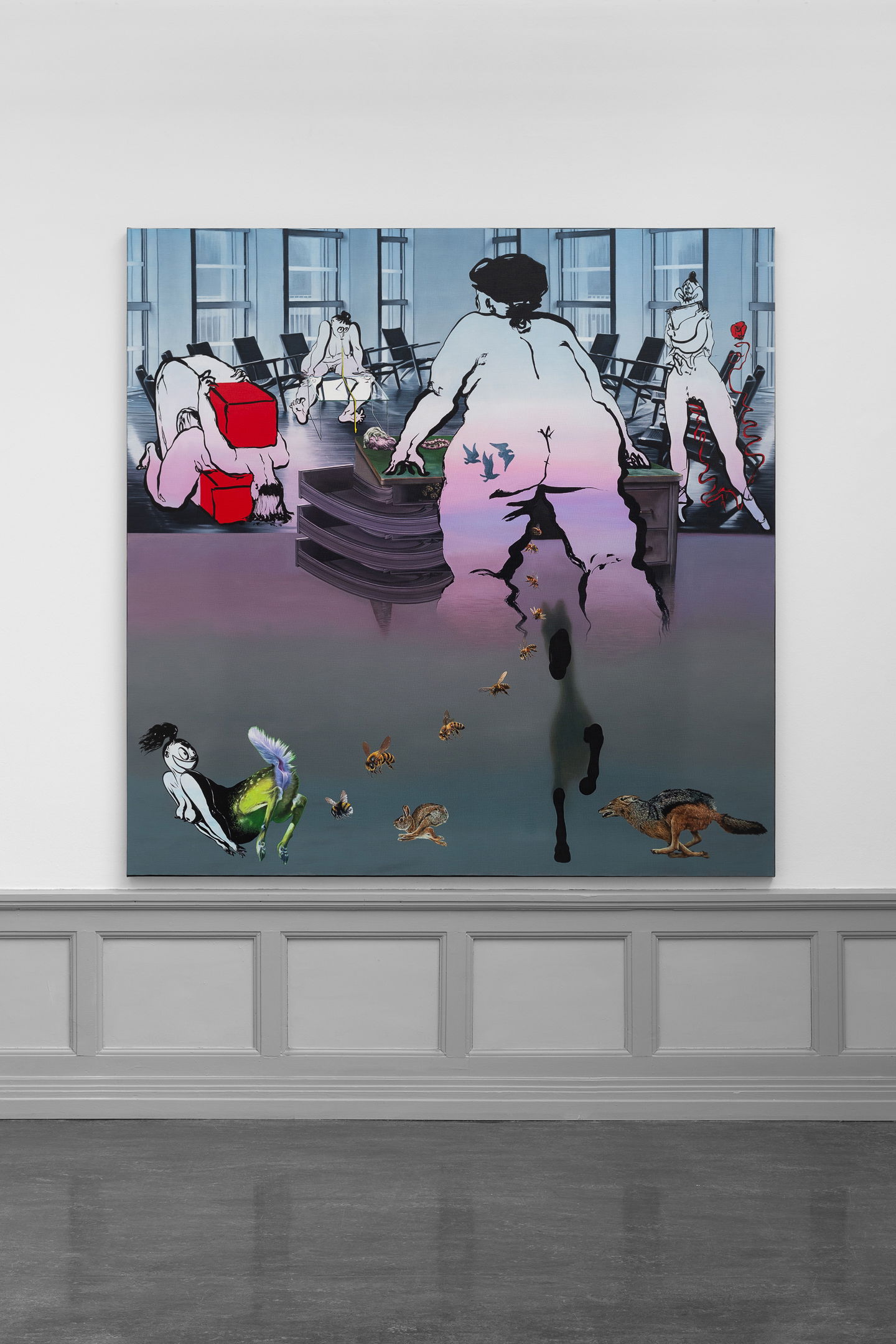
Fatebe Magnet Conference (2025), oil on canvas, 182.9×182.9 cm. Photo: Erik Sæter Jørgensen.
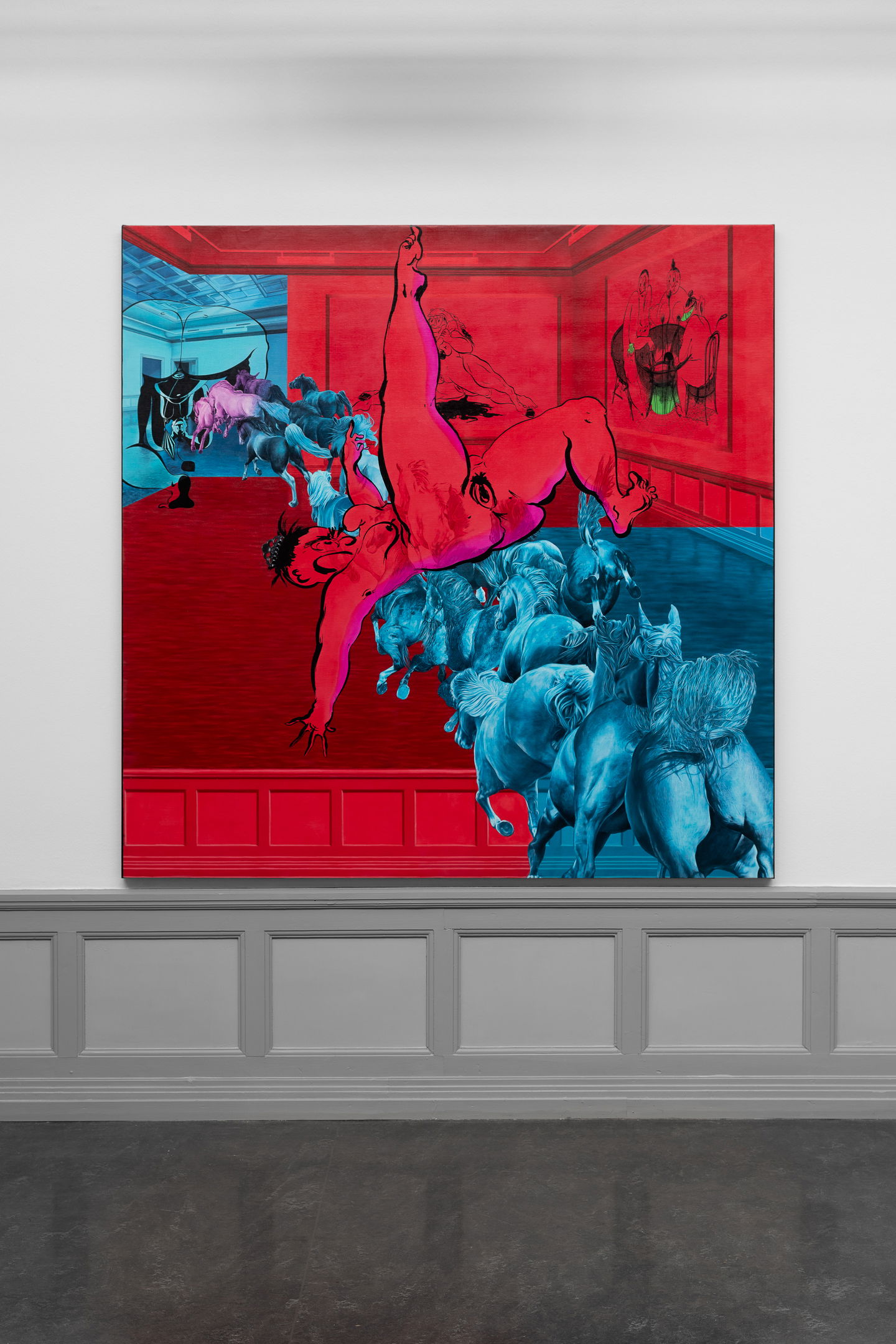
Fatebe Blue Gallop (2025), oil on canvas, 182.9×182.9 cm. Photo: Erik Sæter Jørgensen.
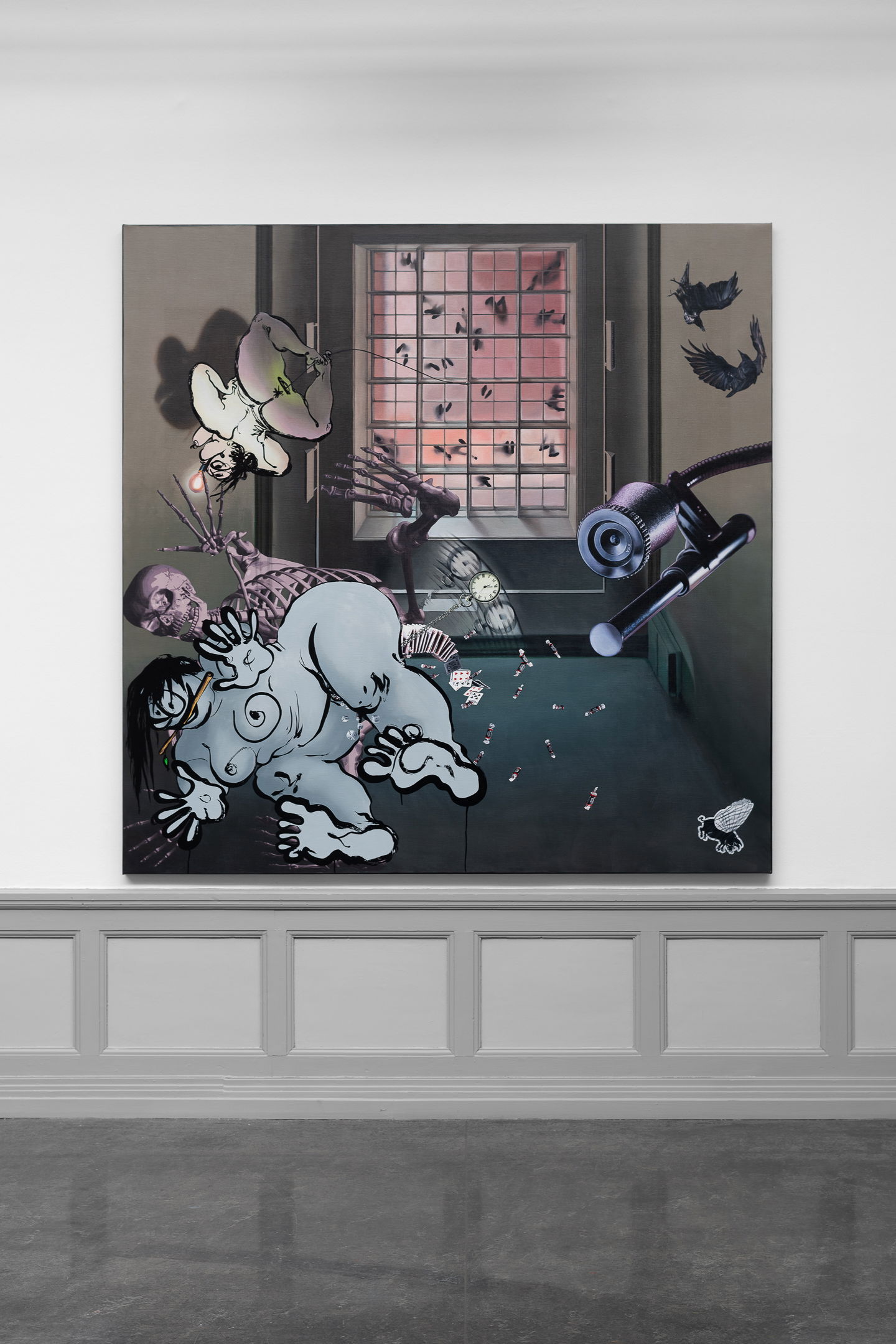
Fatebe the Ceiling (2025), oil on canvas, 182.9×182.9 cm. Photo: Erik Sæter Jørgensen.
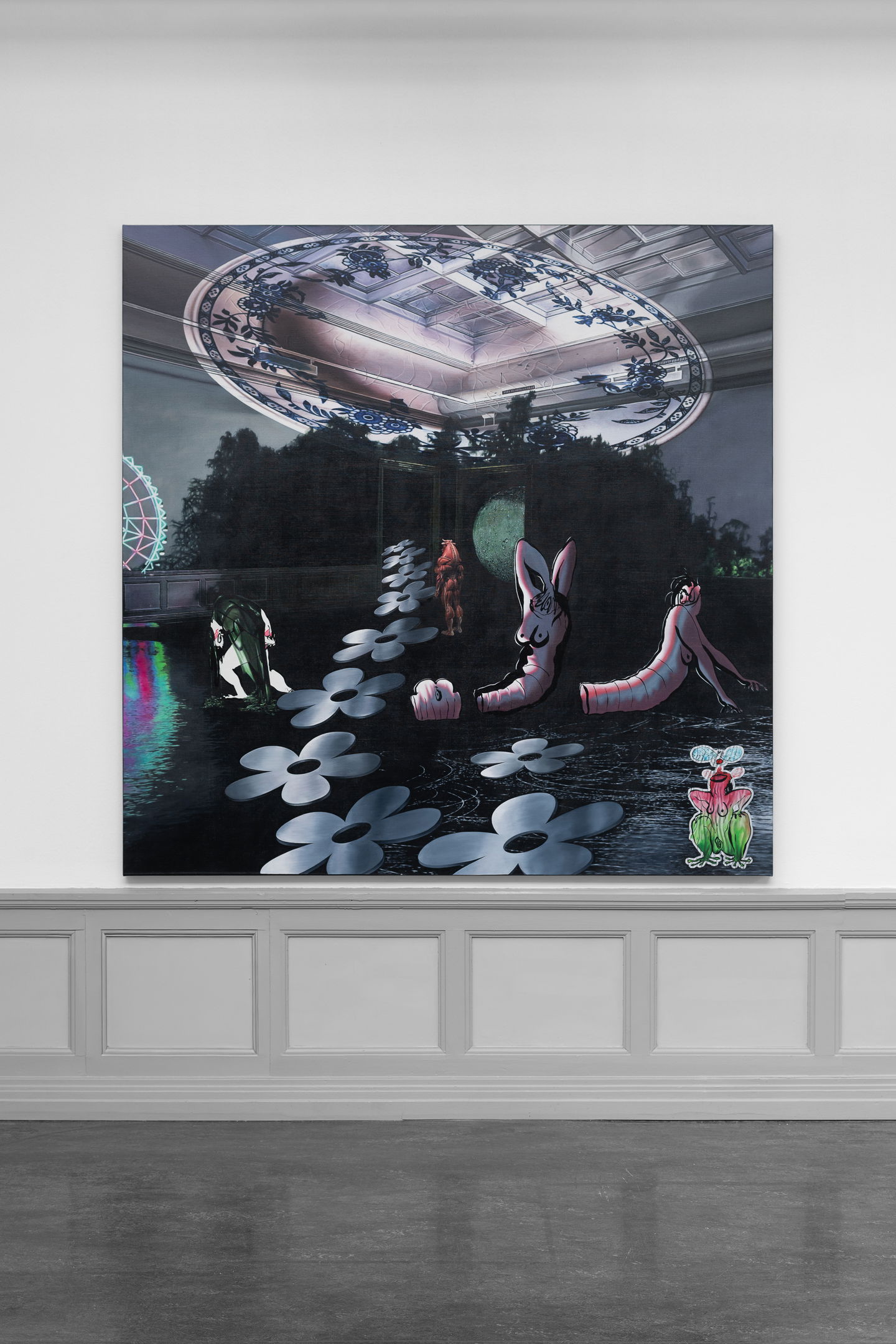
Fatebe True Liars (2025), oil on canvas, 182.9×182.9 cm. Photo: Erik Sæter Jørgensen.
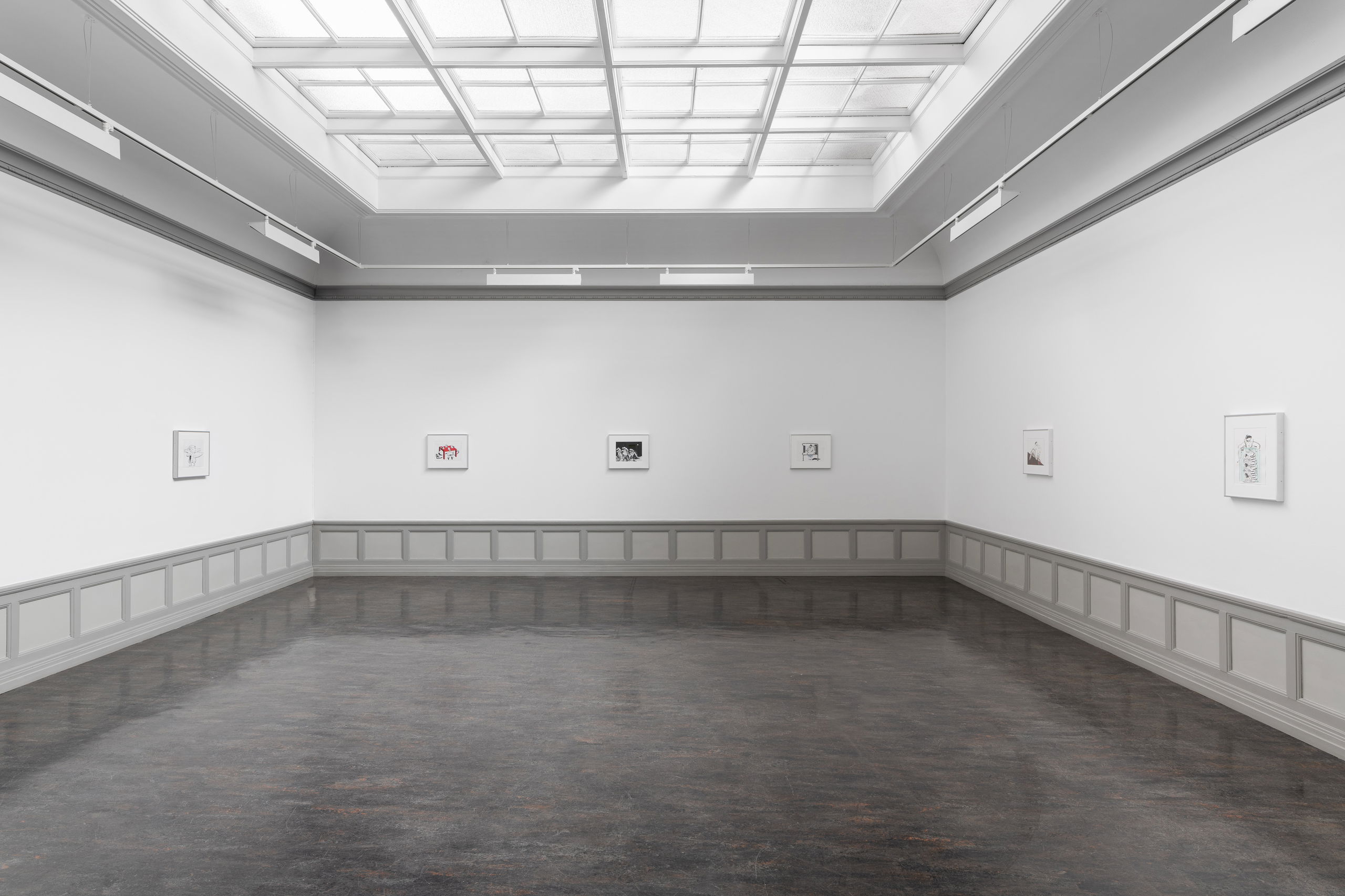
Ebecho Muslimova, Fatebe Shadows (2025), installation view. Photo: Erik Sæter Jørgensen.
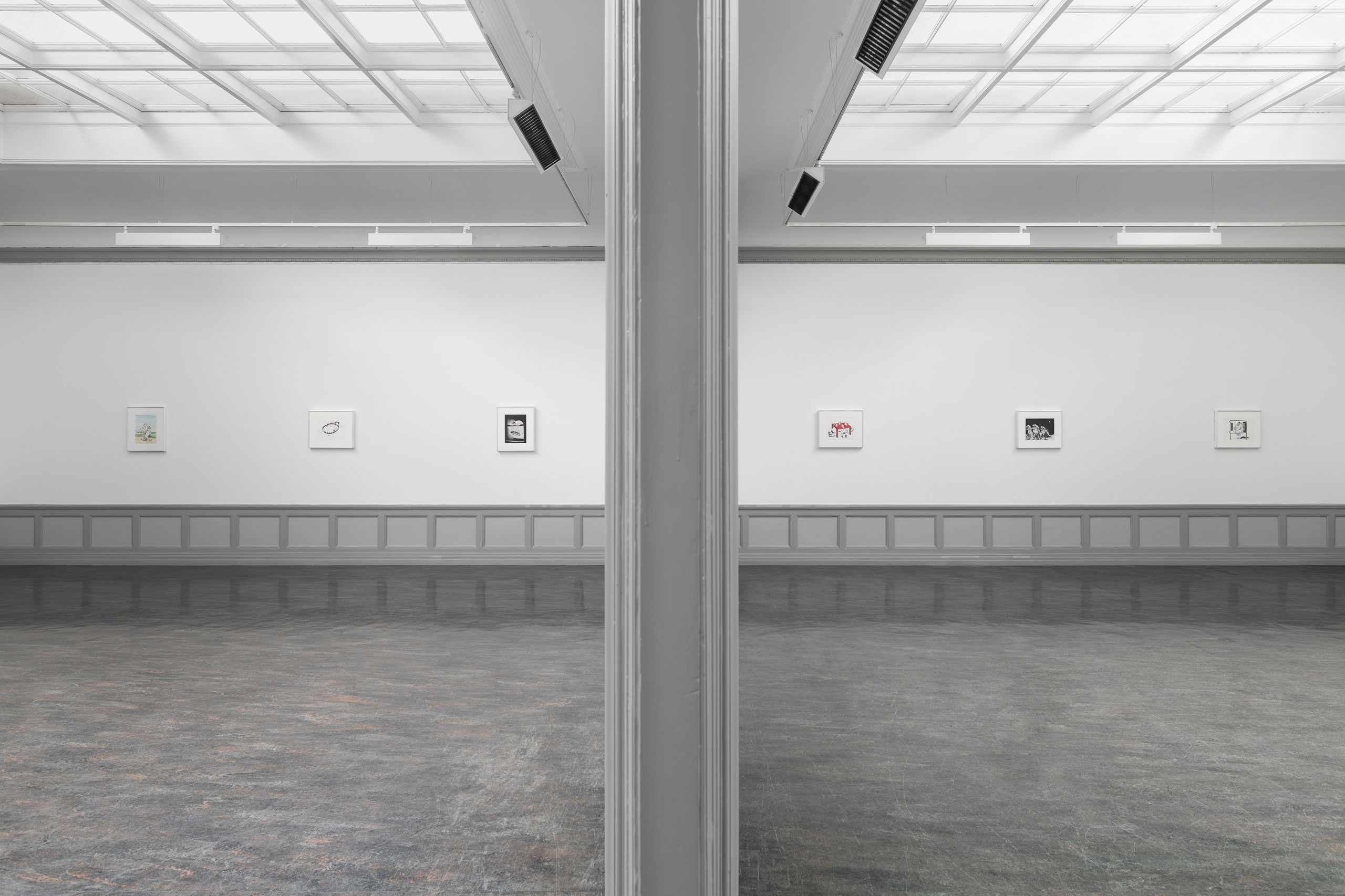
Ebecho Muslimova, Fatebe Shadows (2025), installation view. Photo: Erik Sæter Jørgensen.
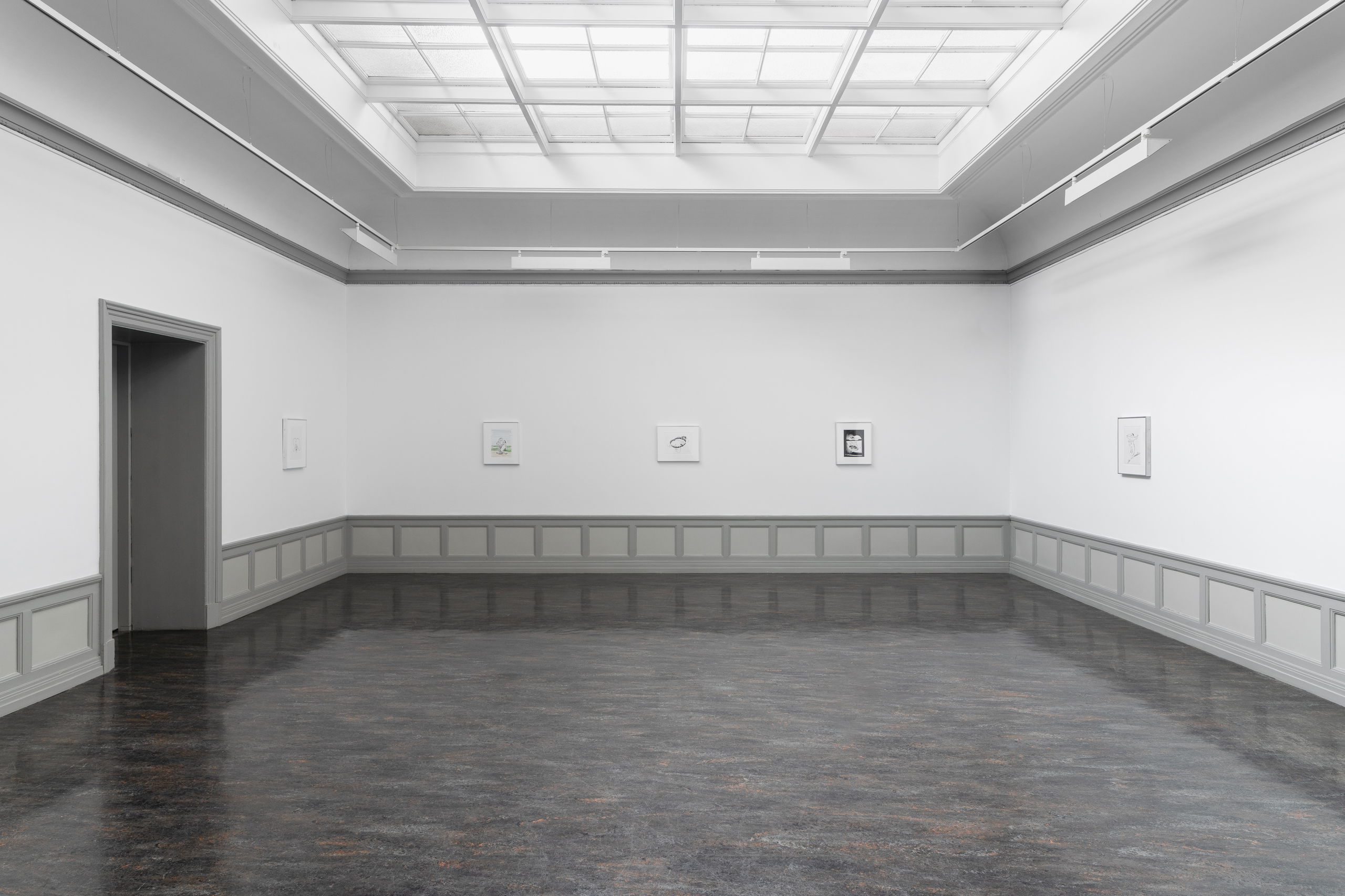
Ebecho Muslimova, Fatebe Shadows (2025), installation view. Photo: Erik Sæter Jørgensen.
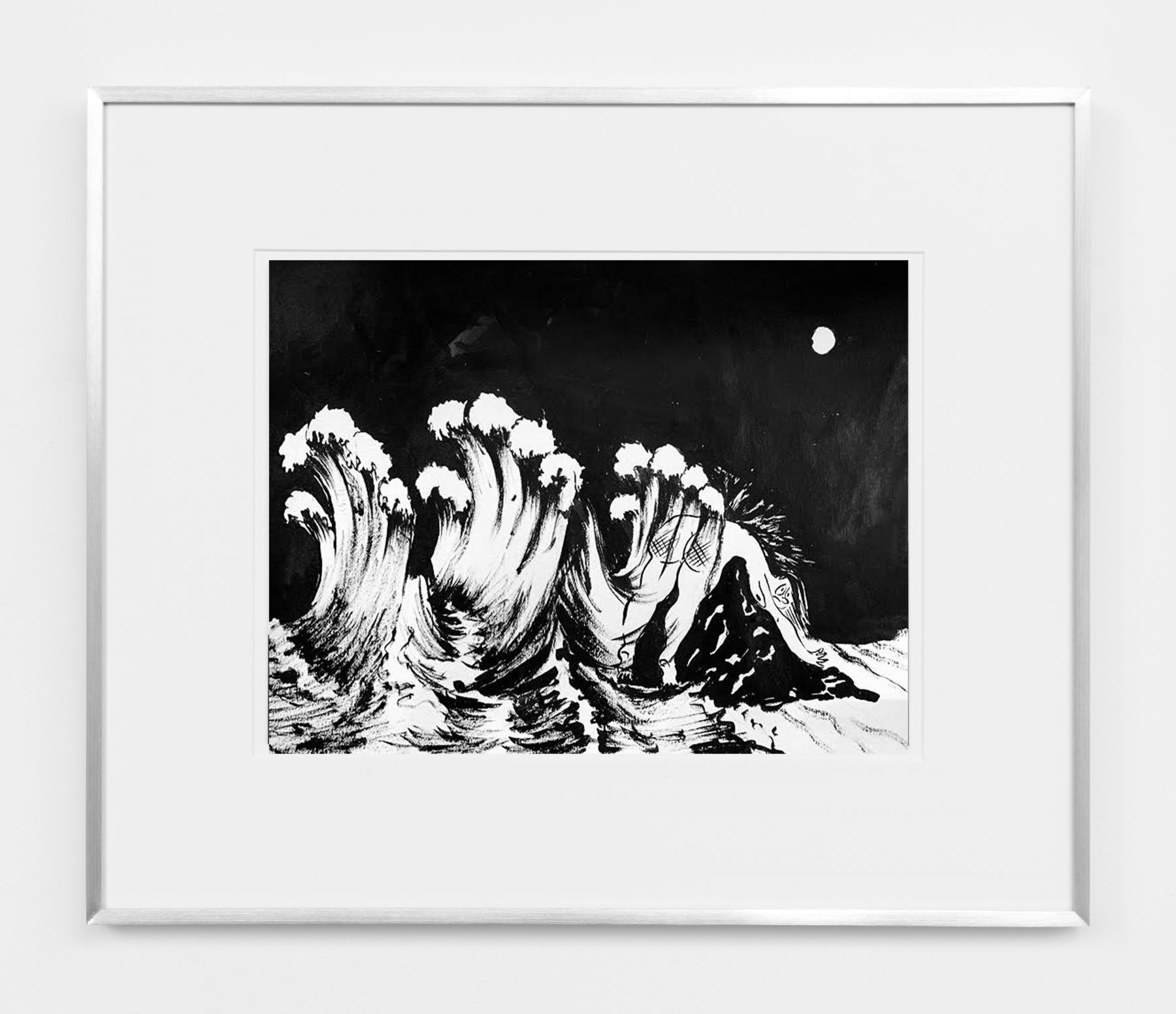
Fatebe The Great Spank (2020), sumi ink on paper, 22.9×30.5 cm. Photo: Magenta Plains.
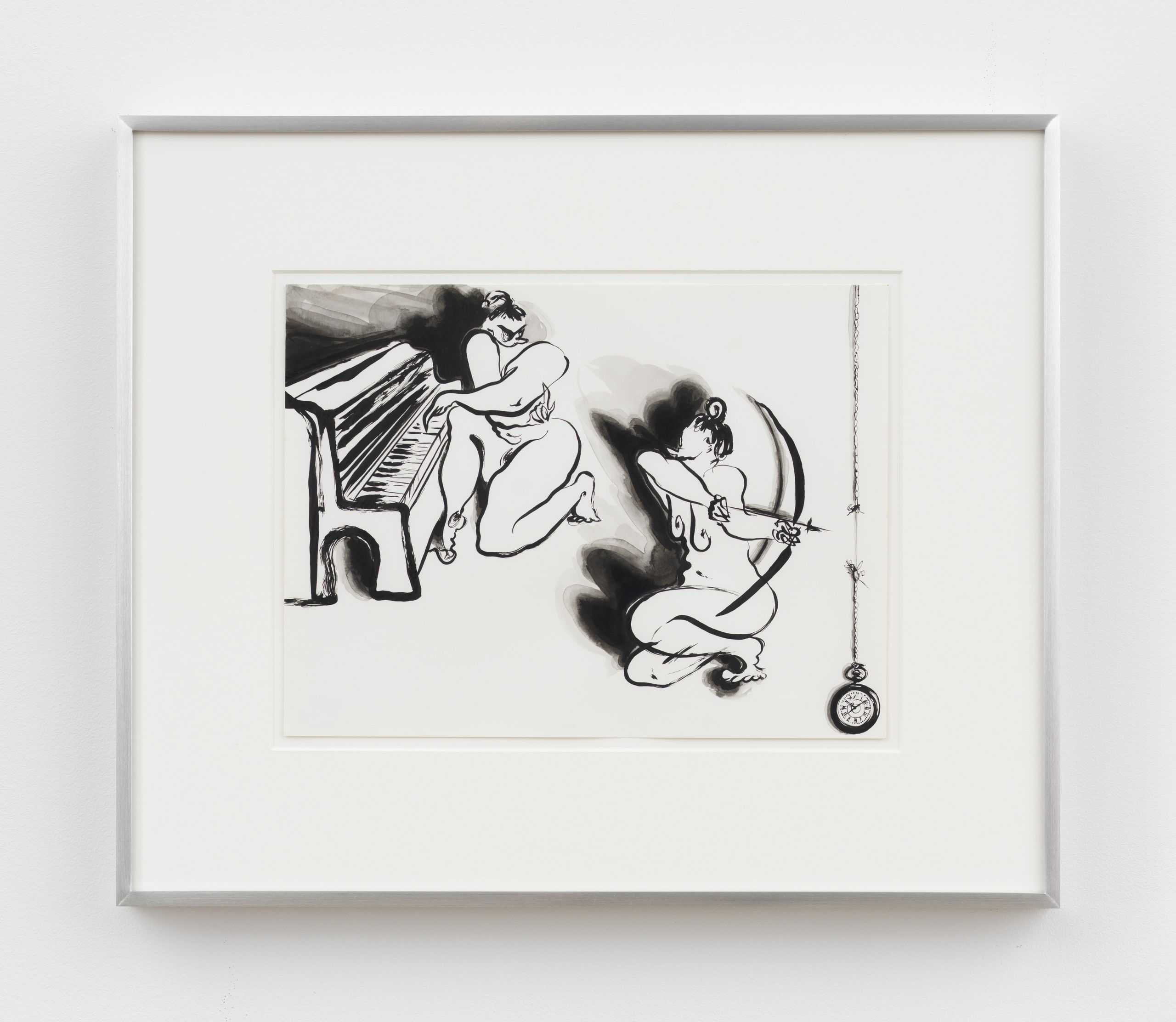
Fatebe Hold the Note (2025), sumi ink on paper, 22.9×30.5 cm. Photo: Magenta Plains.
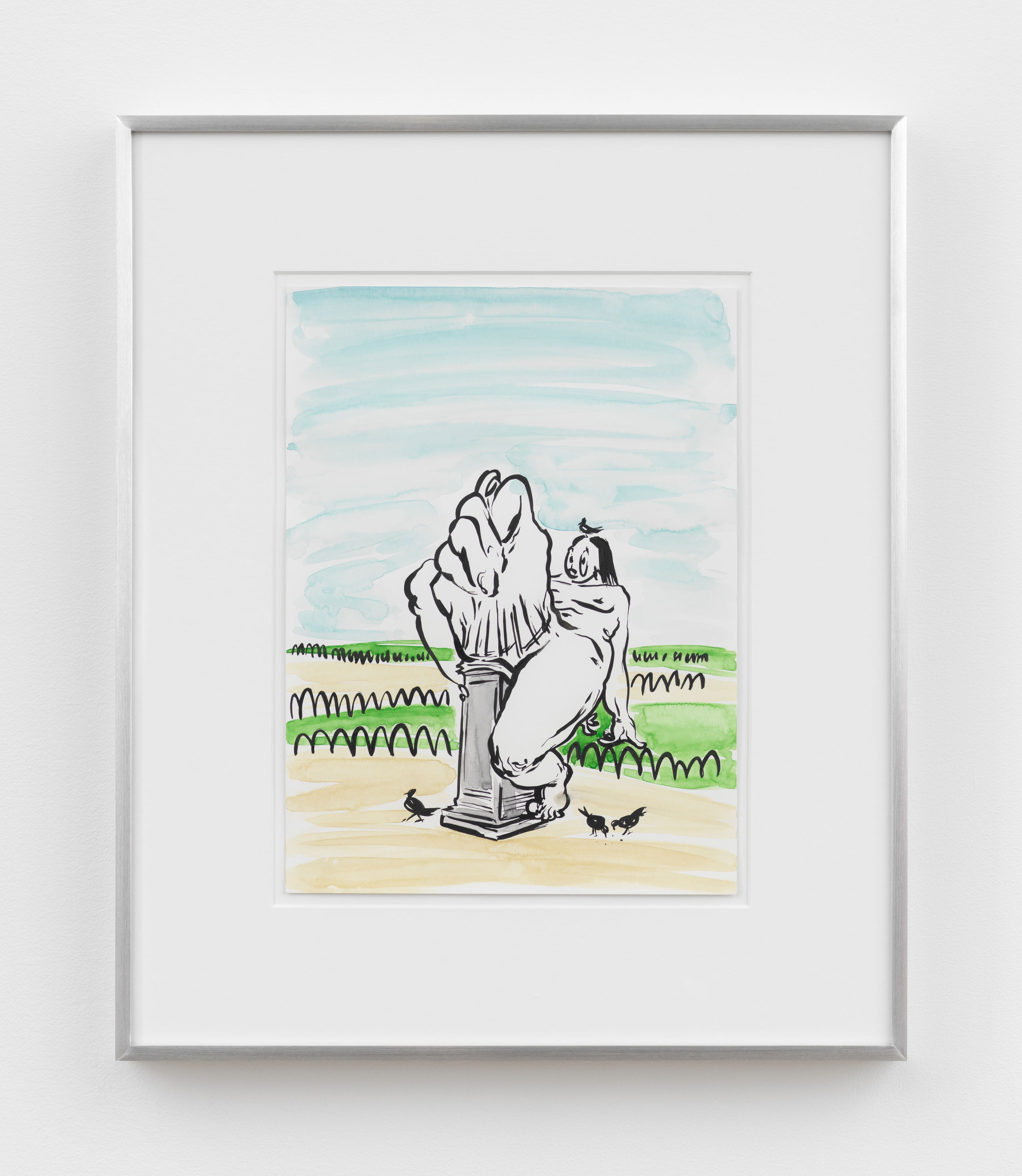
Fatebe Figa (2025), sumi ink on paper, 22.9×30.5 cm. Photo: Magenta Plains.
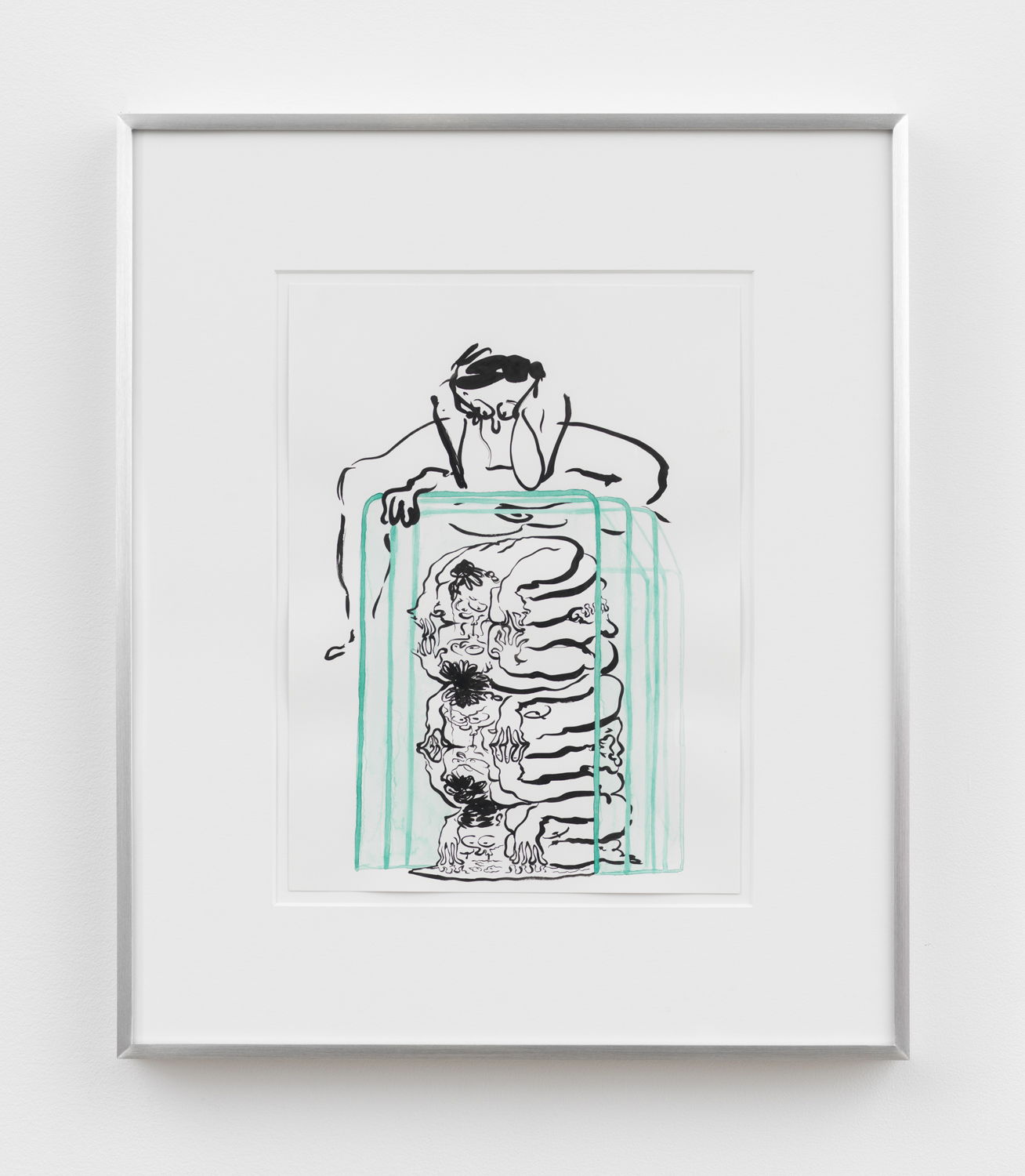
Fatebe Overhead (2025), sumi ink on paper, 30.5×22.9 cm. Photo: Magenta Plains.
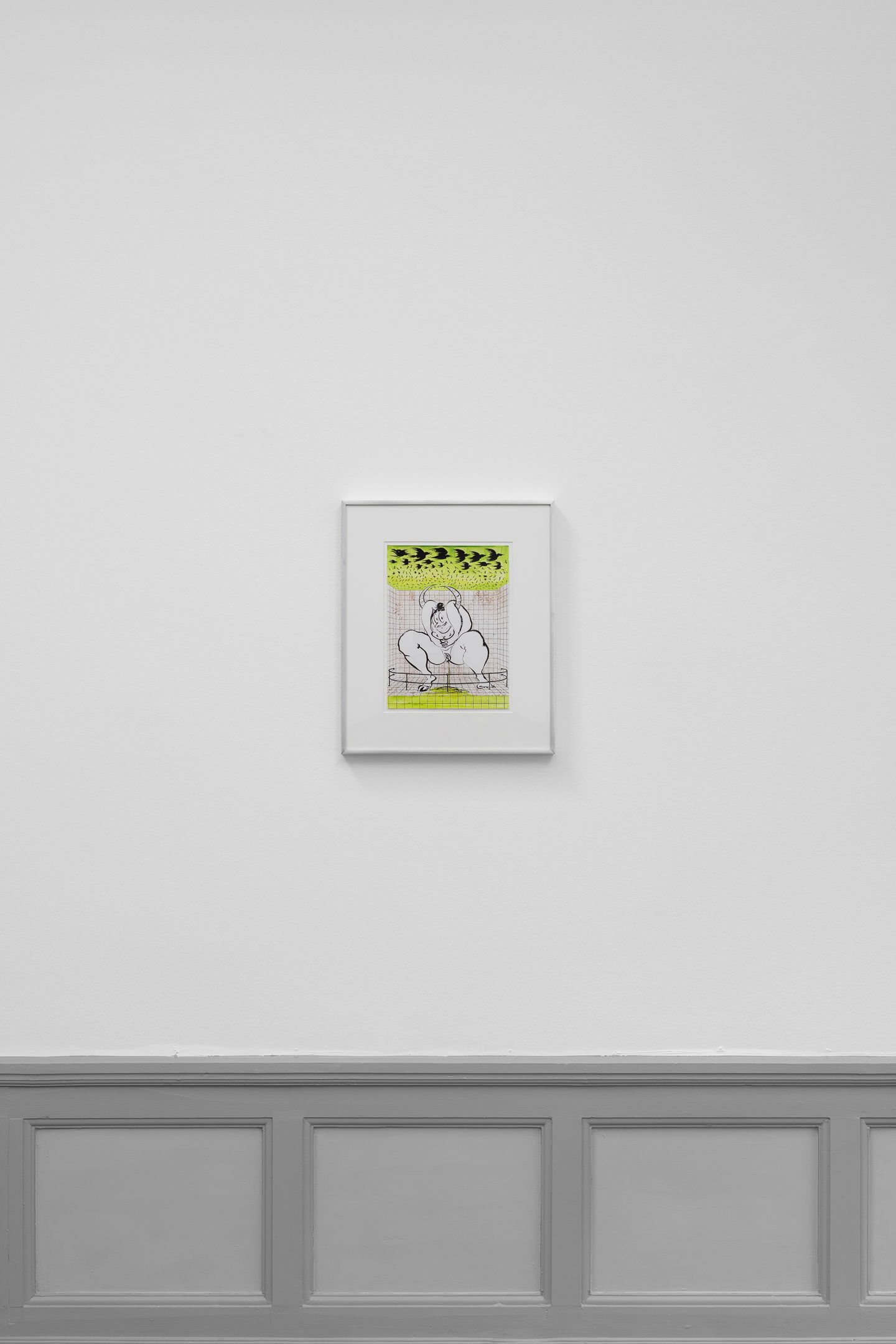
Fatebe Io Squat (2025), sumi ink and watercolor on paper., 30.5×22.9 cm. Photo: Erik Sæter Jørgensen.
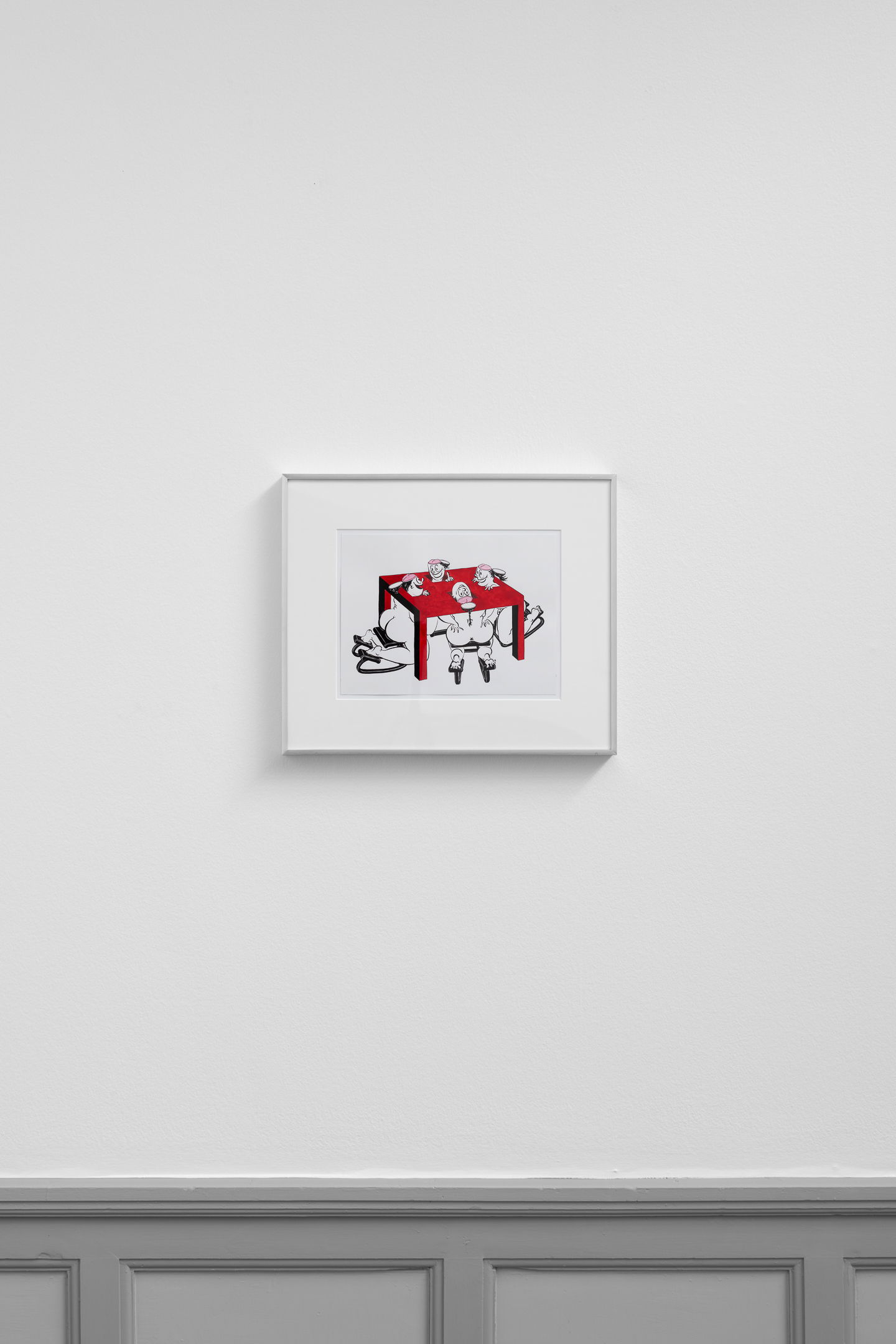
Fatebe Posture Convention (2025), sumi ink and watercolor on paper, 22.9×30.5 cm. Photo: Erik Sæter Jørgensen.
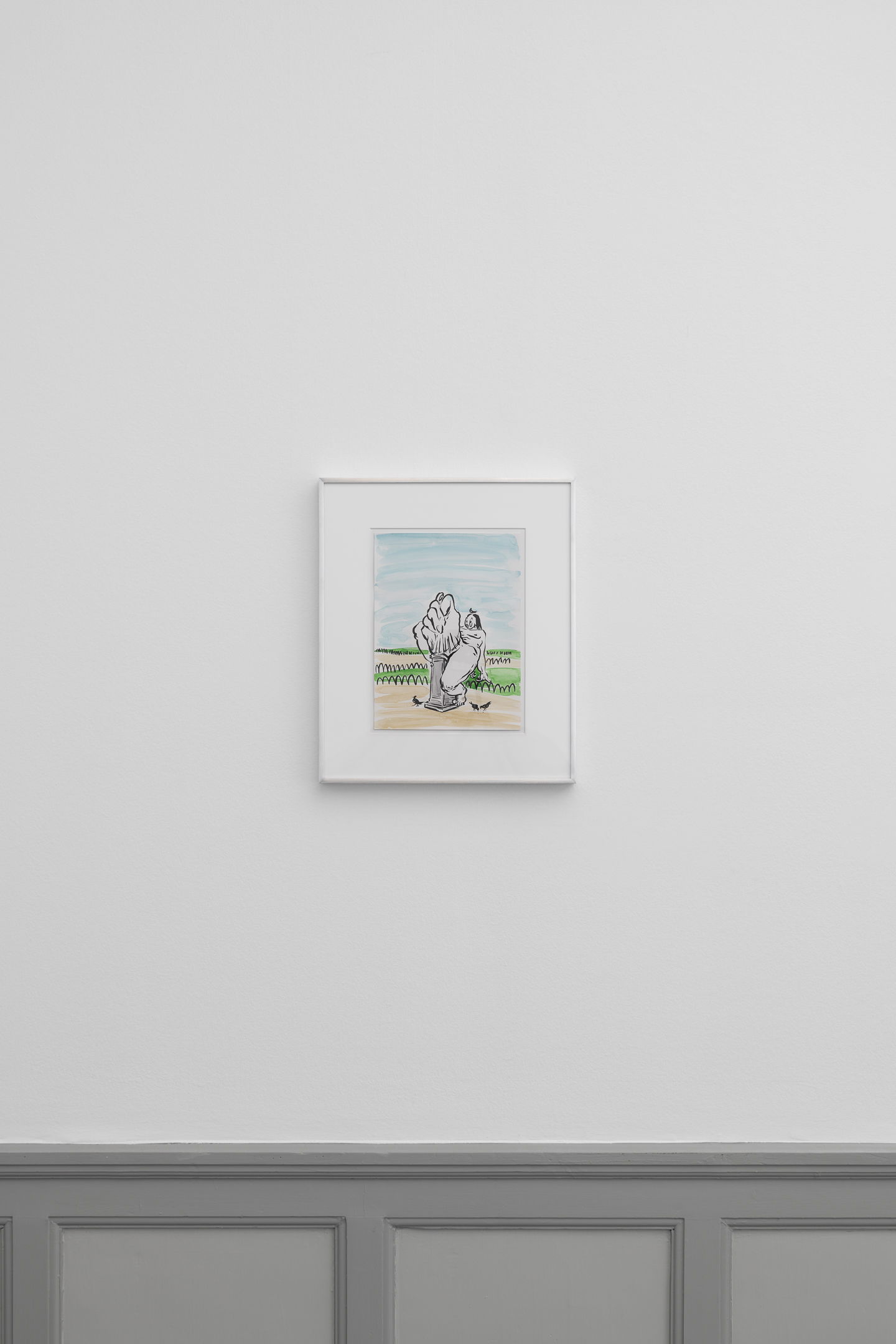
Fatebe Figa (2025), sumi ink on paper, 30.5×22.9 cm. Photo: Erik Sæter Jørgensen.